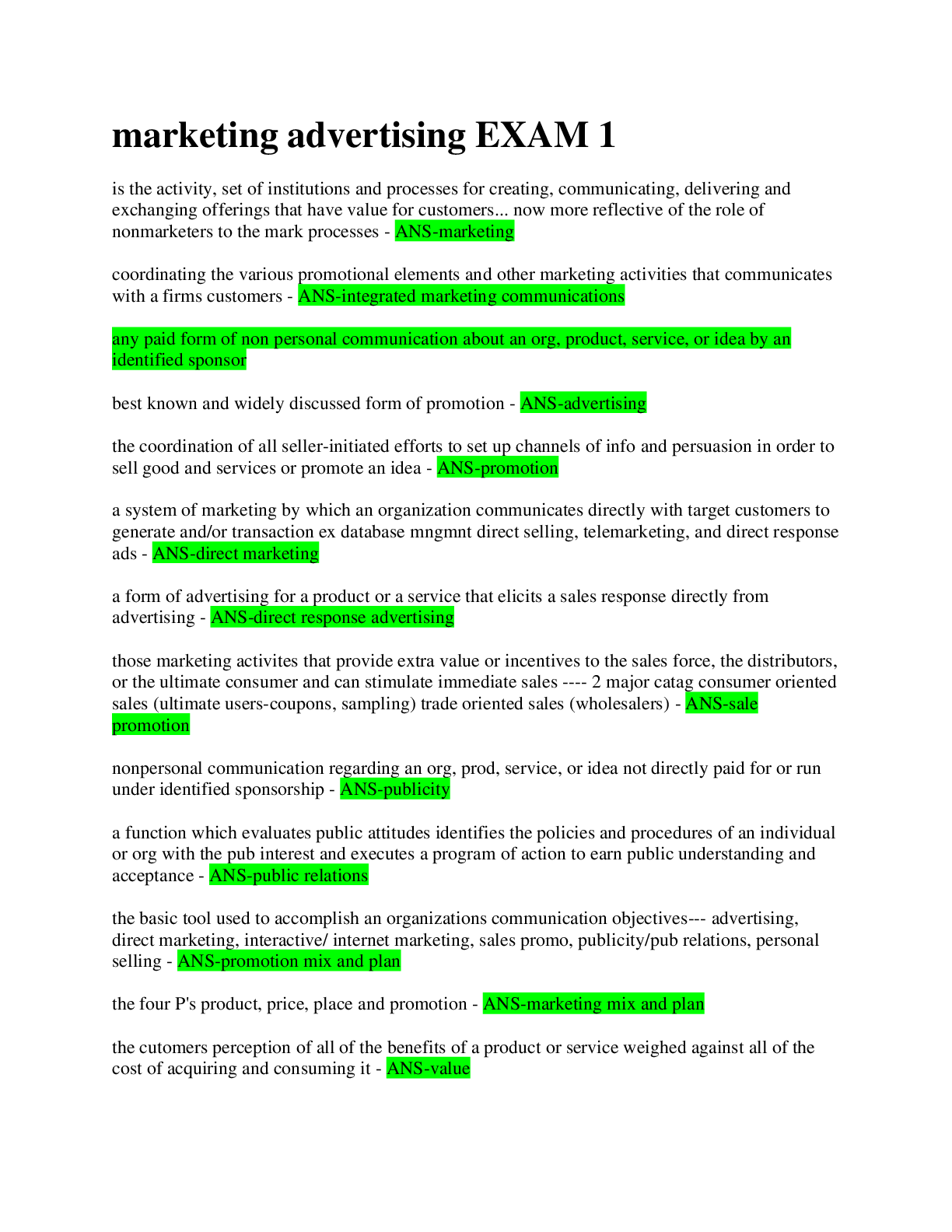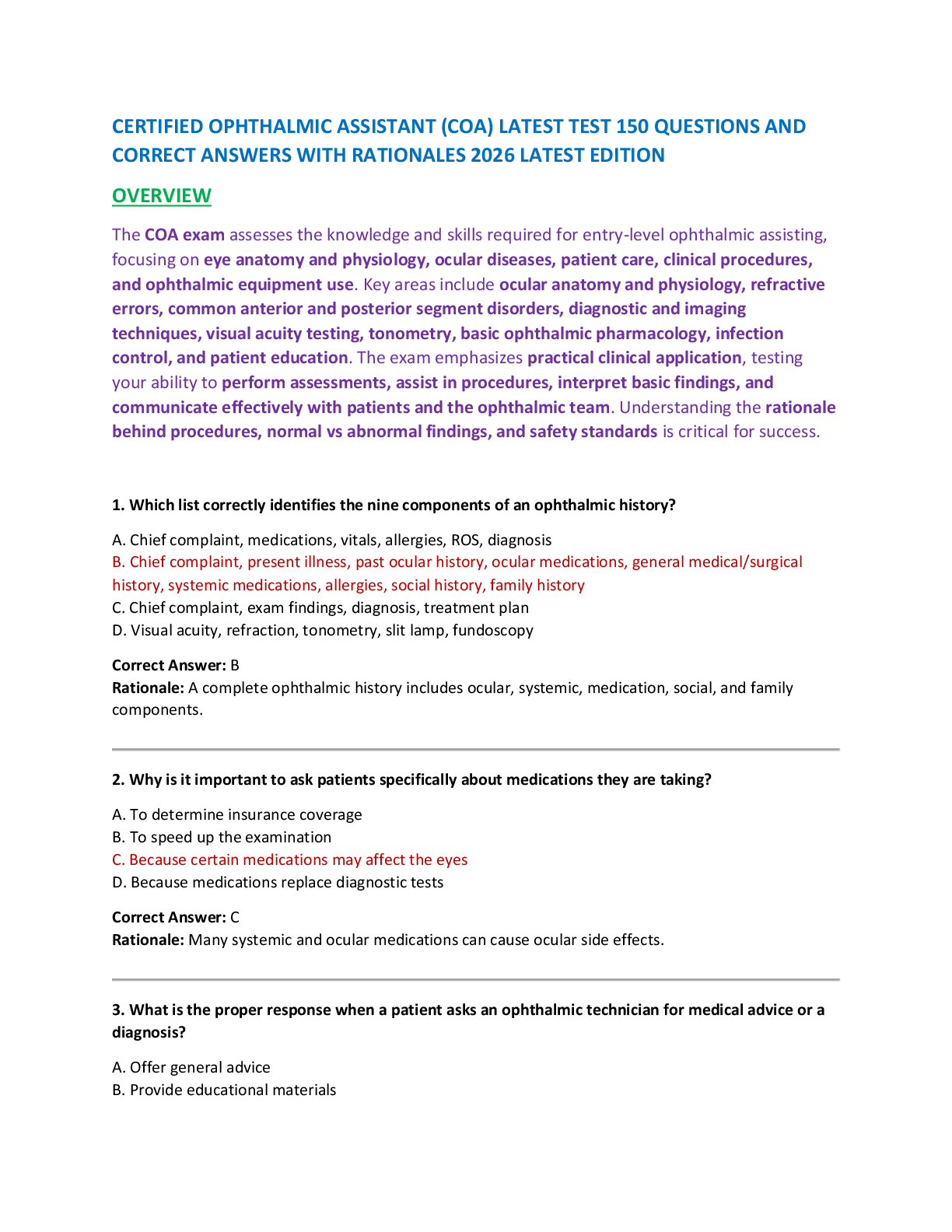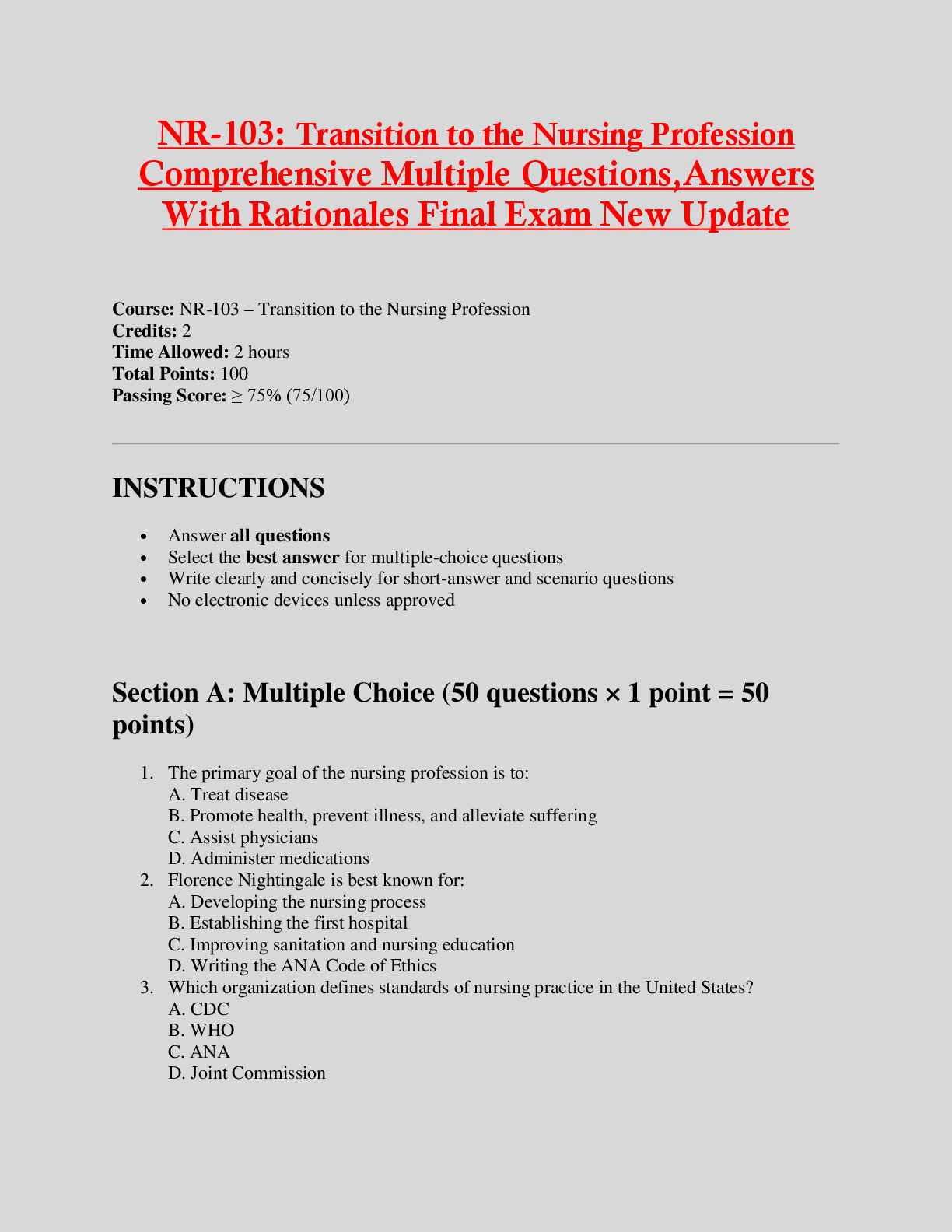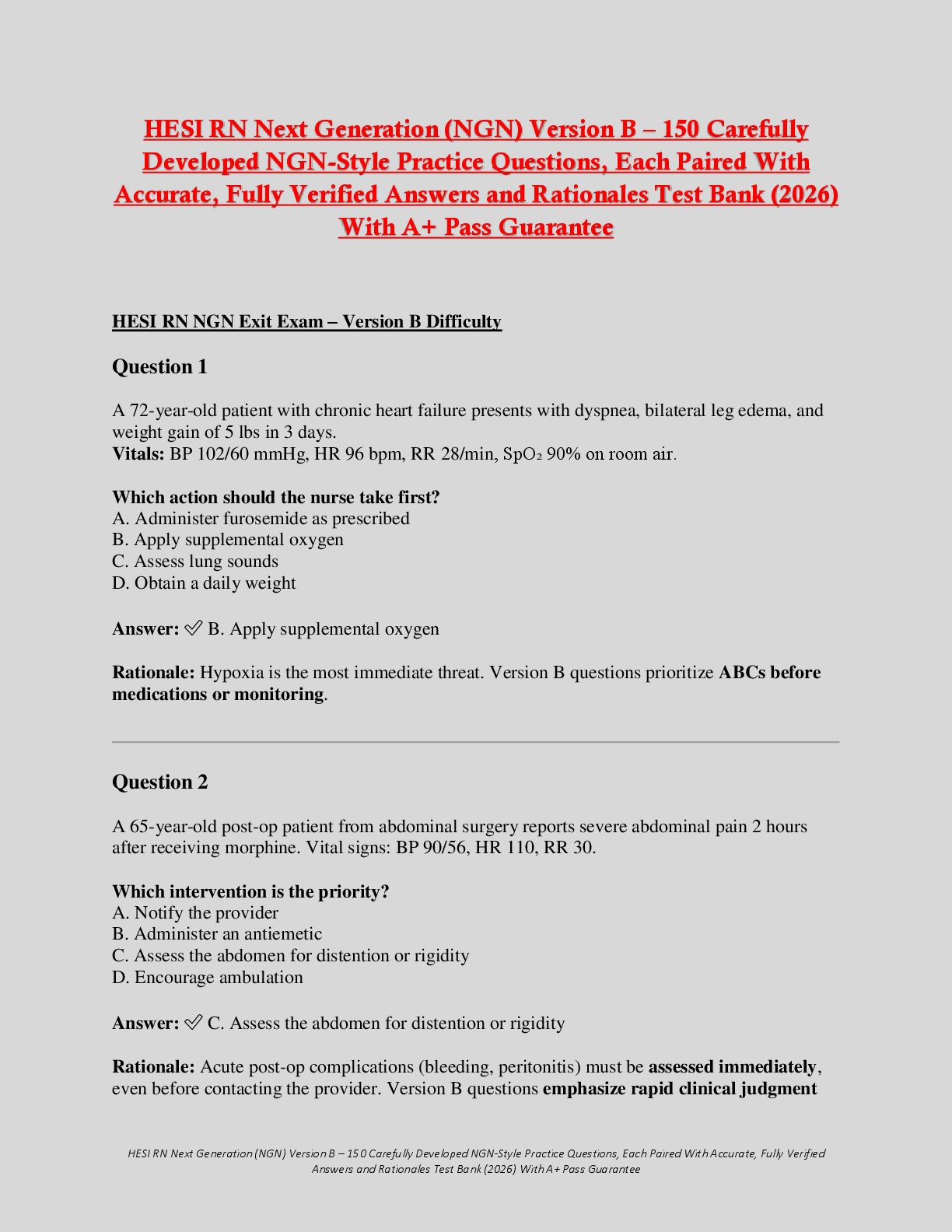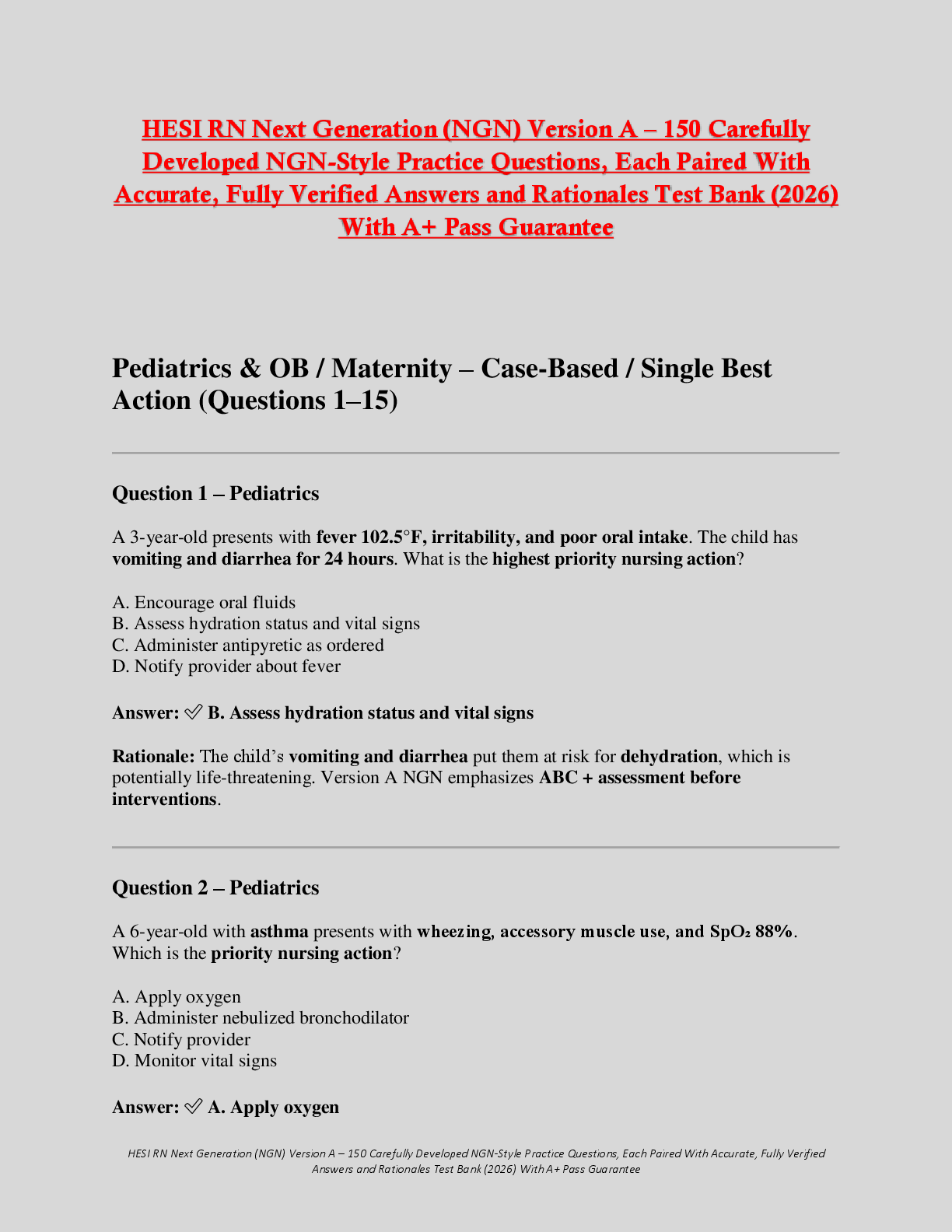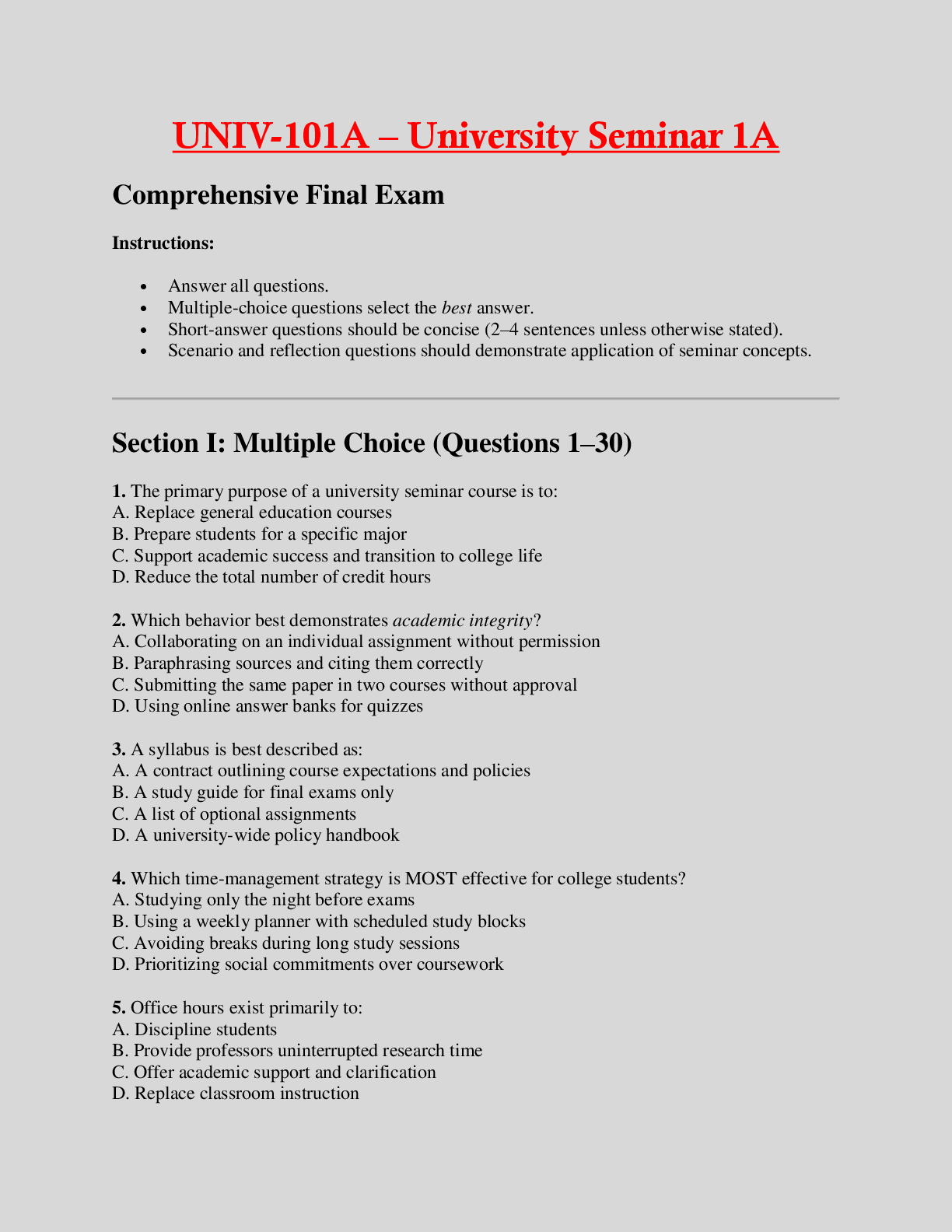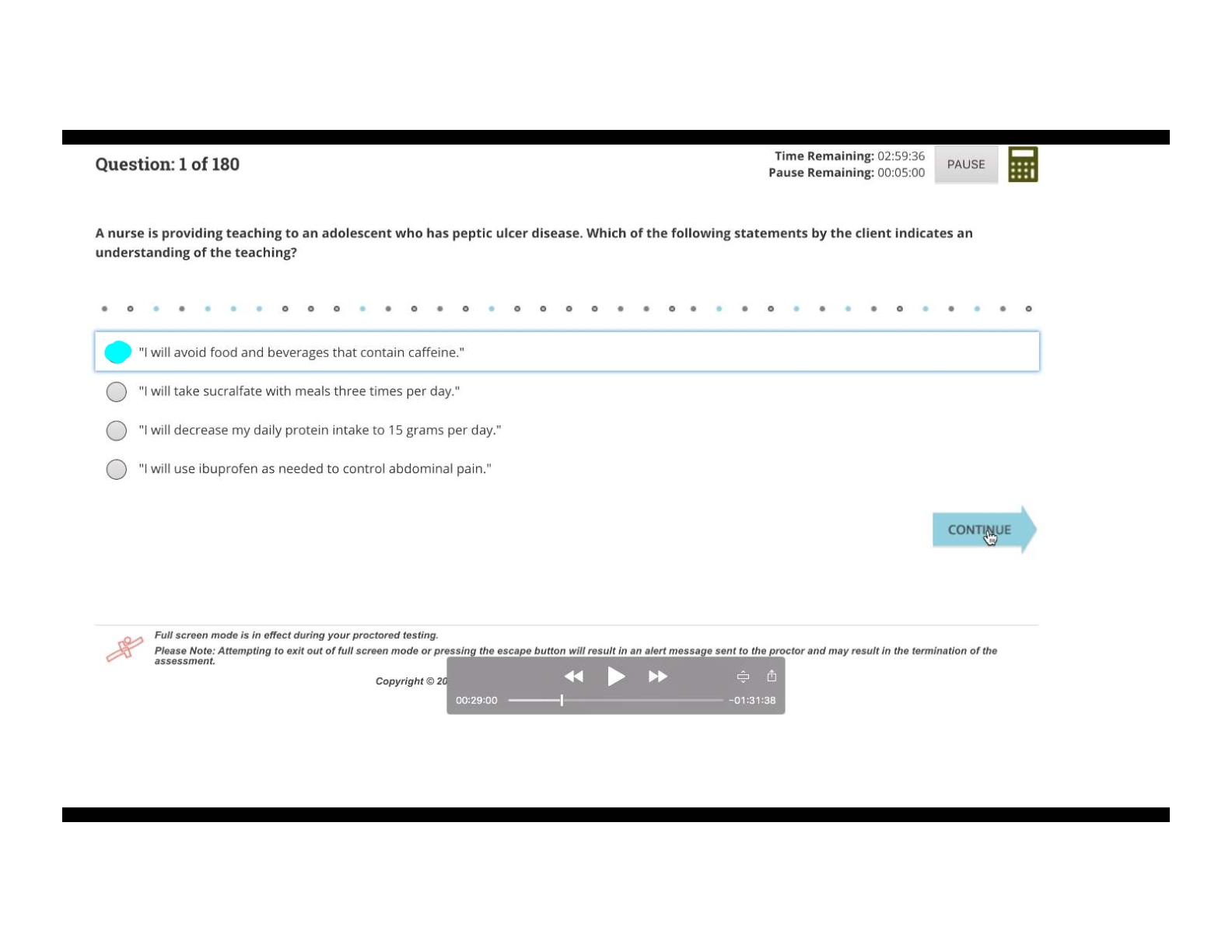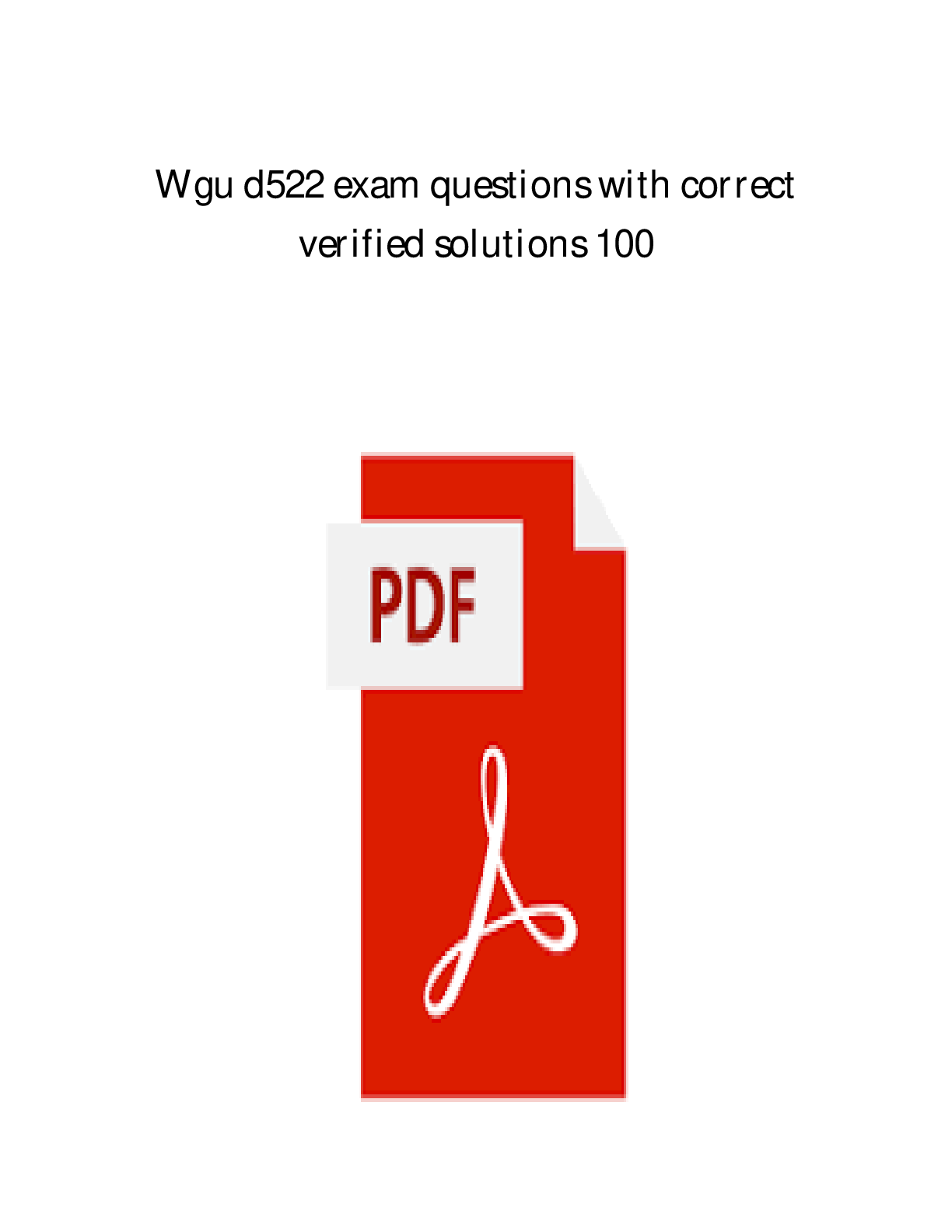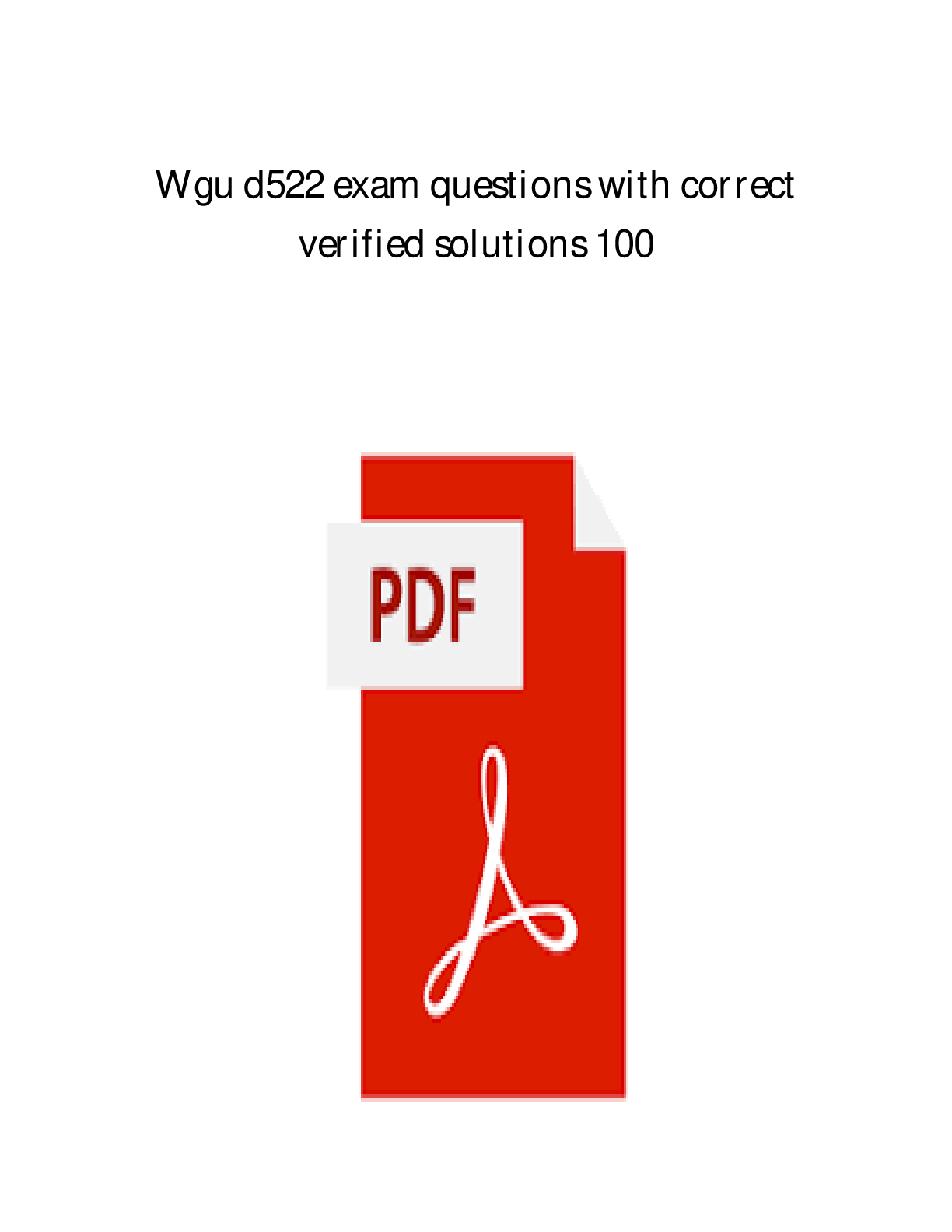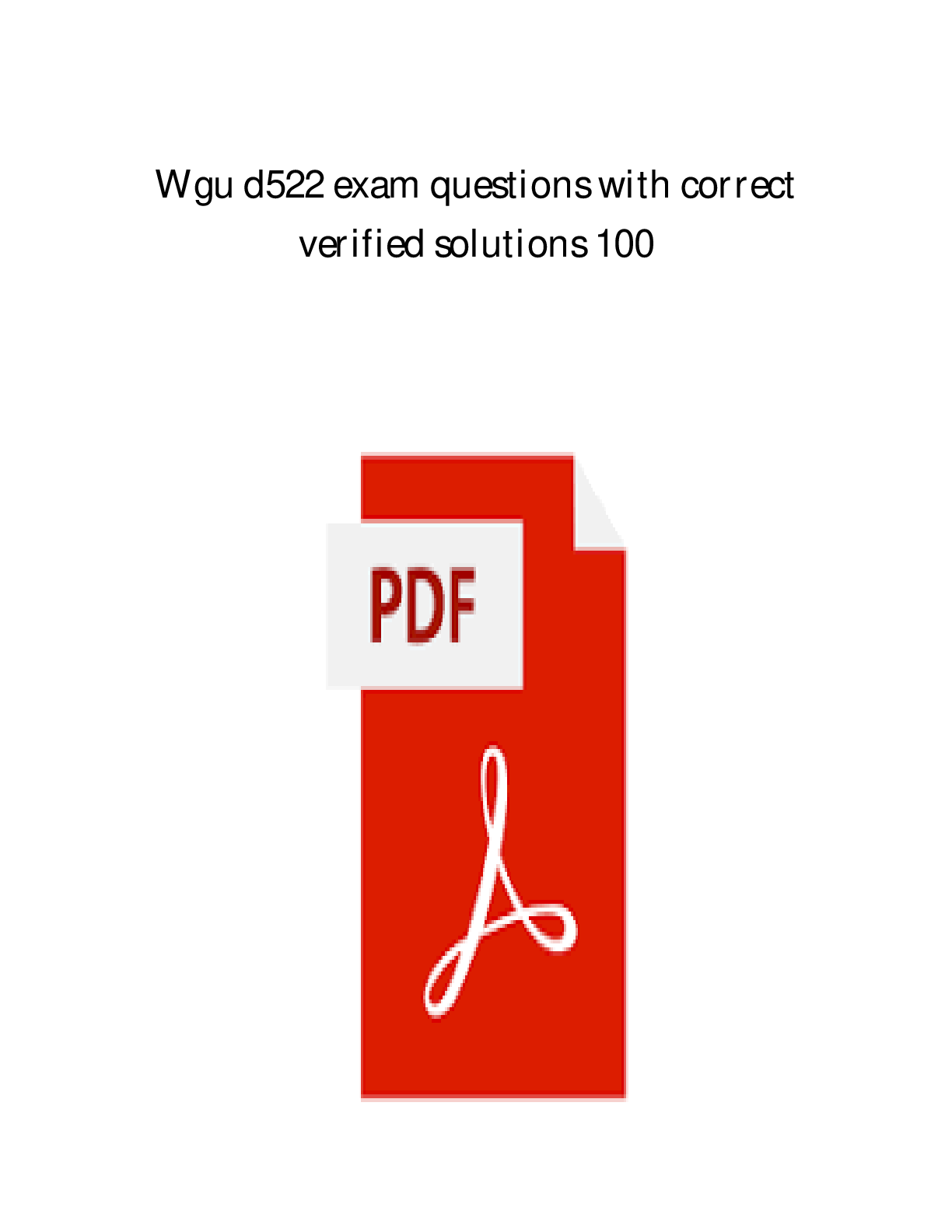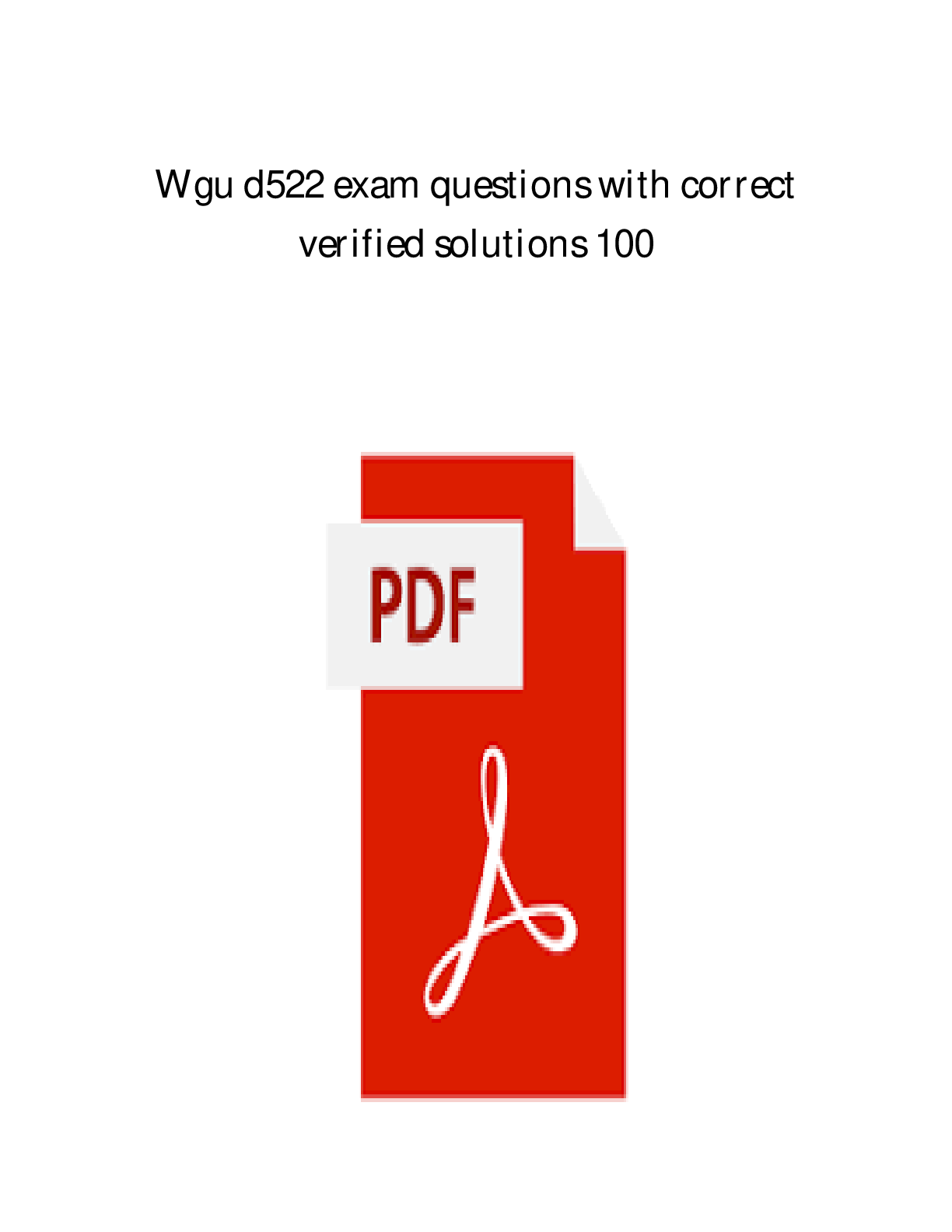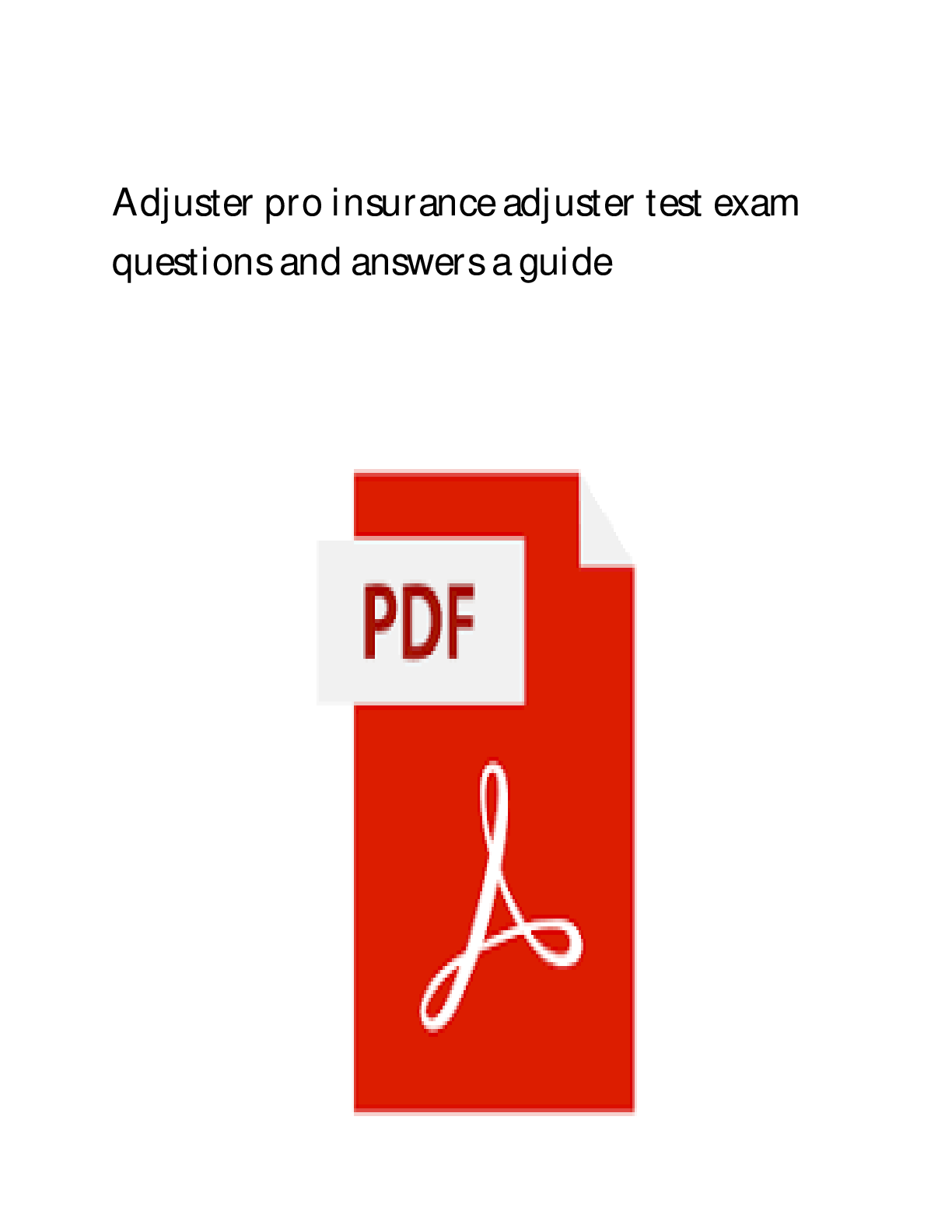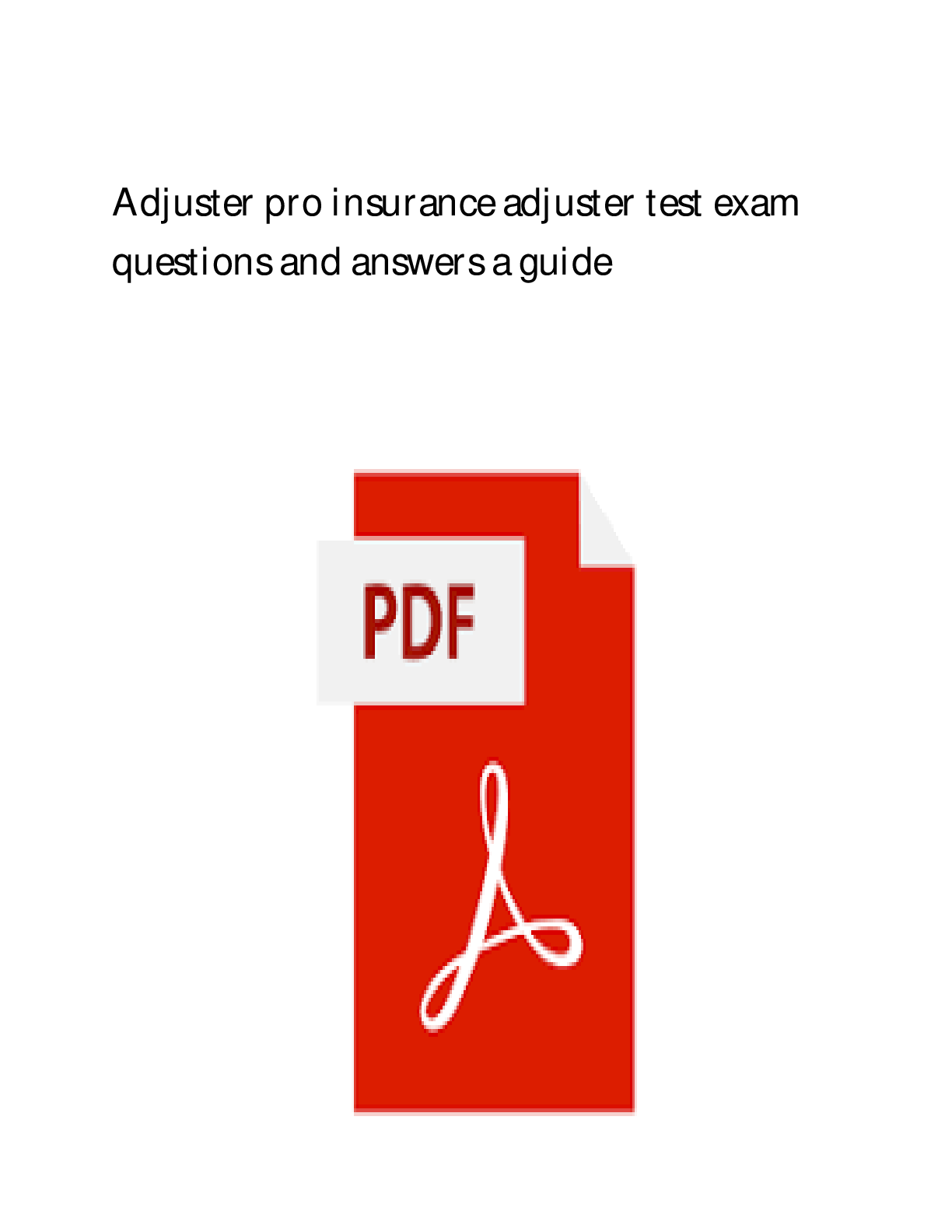
[eBook] [ORG PDF] Best Practices for Mentoring in Online Programs 1st Edition By Susan Ko, Olena Zhadko
$ 25
.png)
ANCC Questions and Answers Latest Update Graded A+
$ 11

SOPHIA CONFLICT MILESTONE 5
$ 9.5

ATI Comprehensive Predictor – 200 Questions $ Answers
$ 17
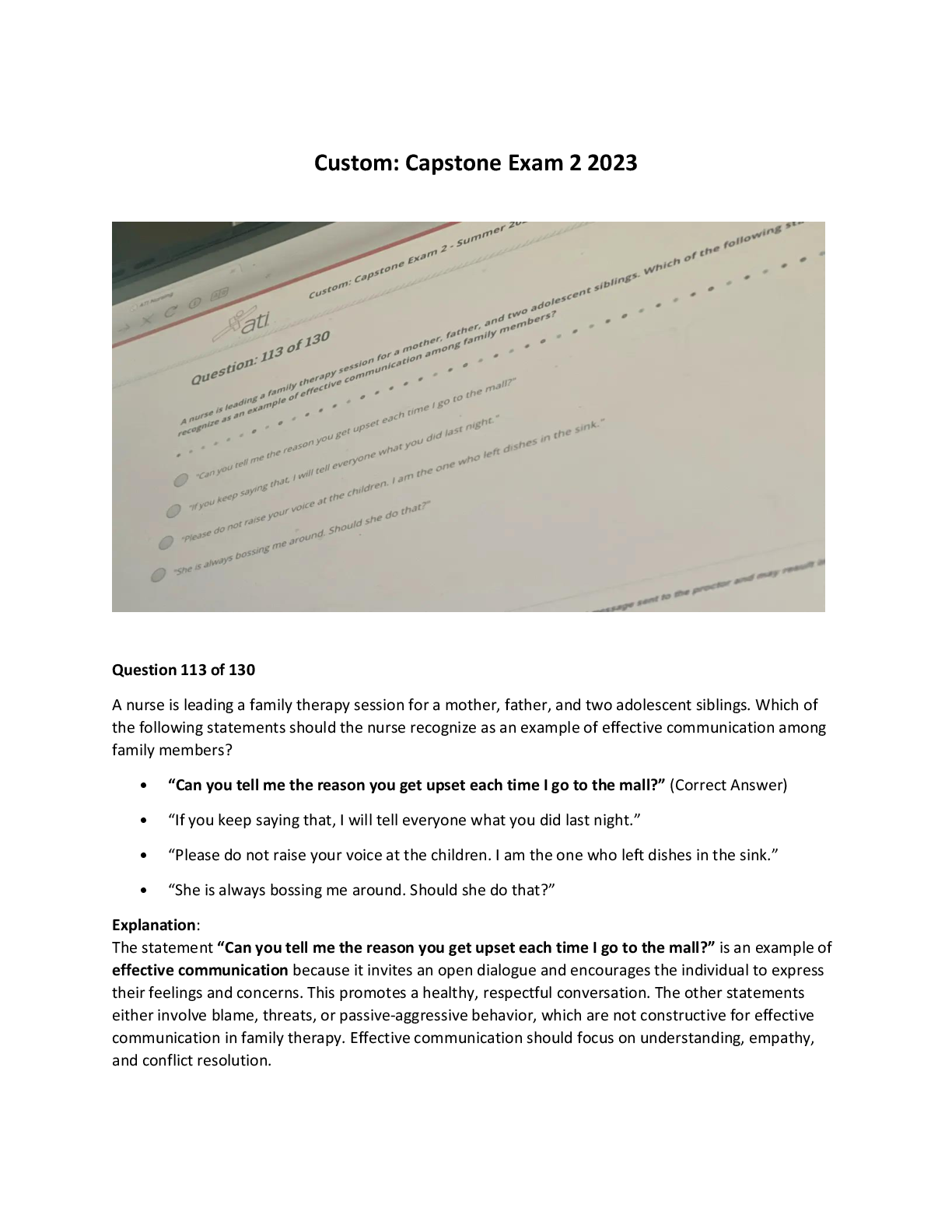
2023-custom-capstone-exam-2
$ 40
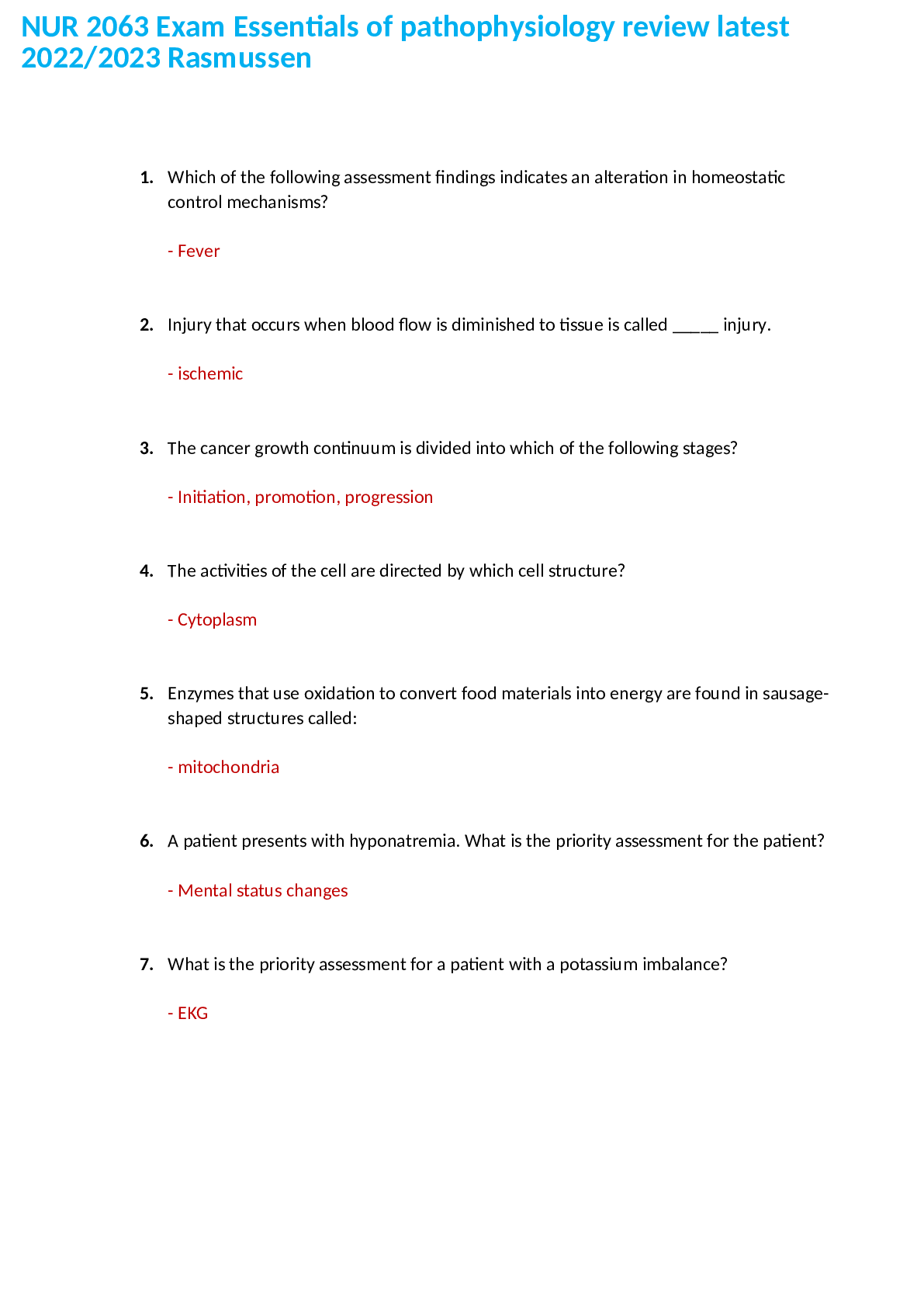
NUR 2063 / NUR2063 Exam 1: Essentials of Pathophysiology Exam 1 Review (Latest 2022/2023) Rasmussen
$ 12
.png)
WGU C207 Data Driven Decision Making Questions and Answers Already Passed
$ 10
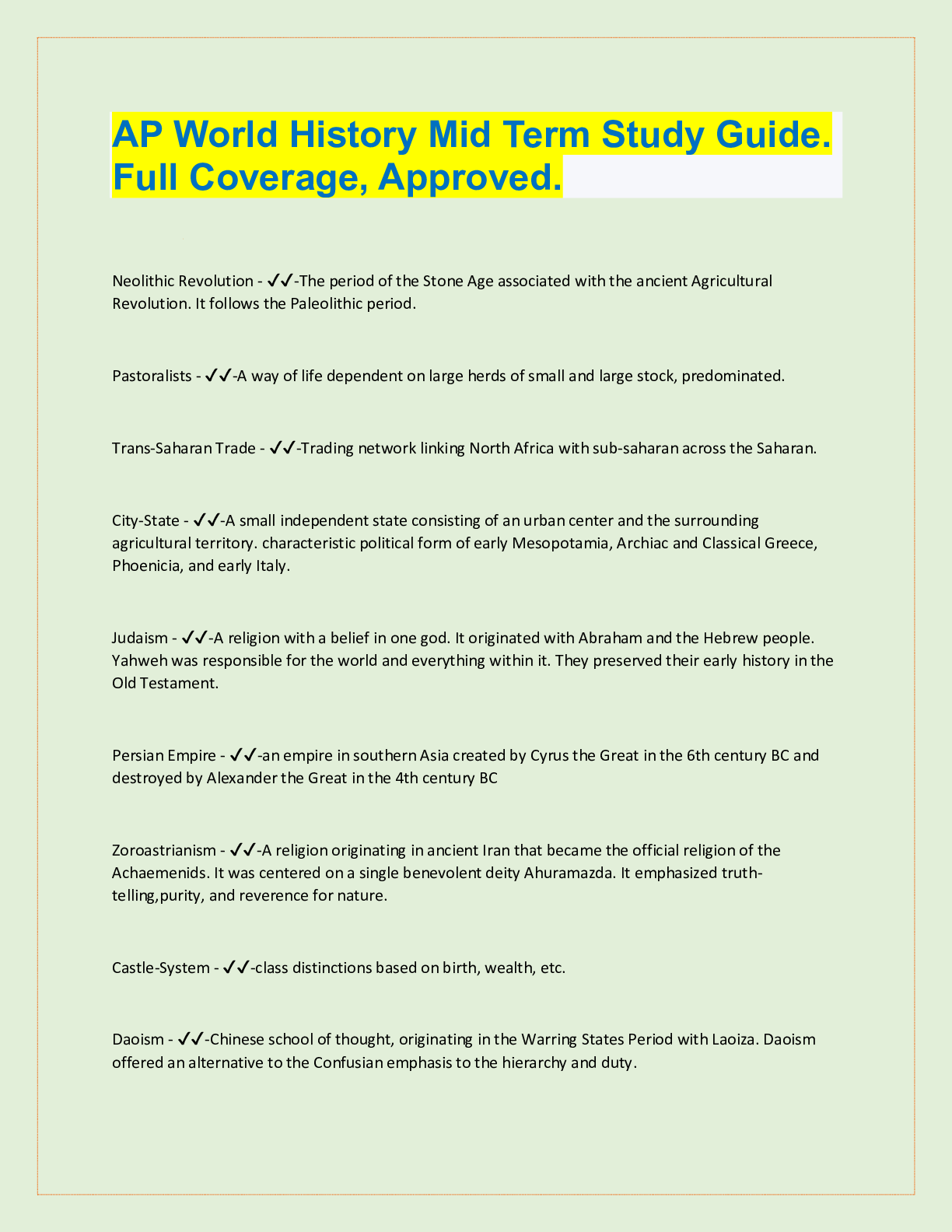
AP World History Mid Term Study Guide. Full Coverage, Approved
$ 9

Elevator Mechanic Exam 2018
$ 9.5
.png)
AQA AS PHYSICS 7407/1 Paper 1 Mark scheme June 2021 Version: 1.0 Final
$ 10
.png)
CLG 0010 Questions and Answers Latest Update Graded A+
$ 6
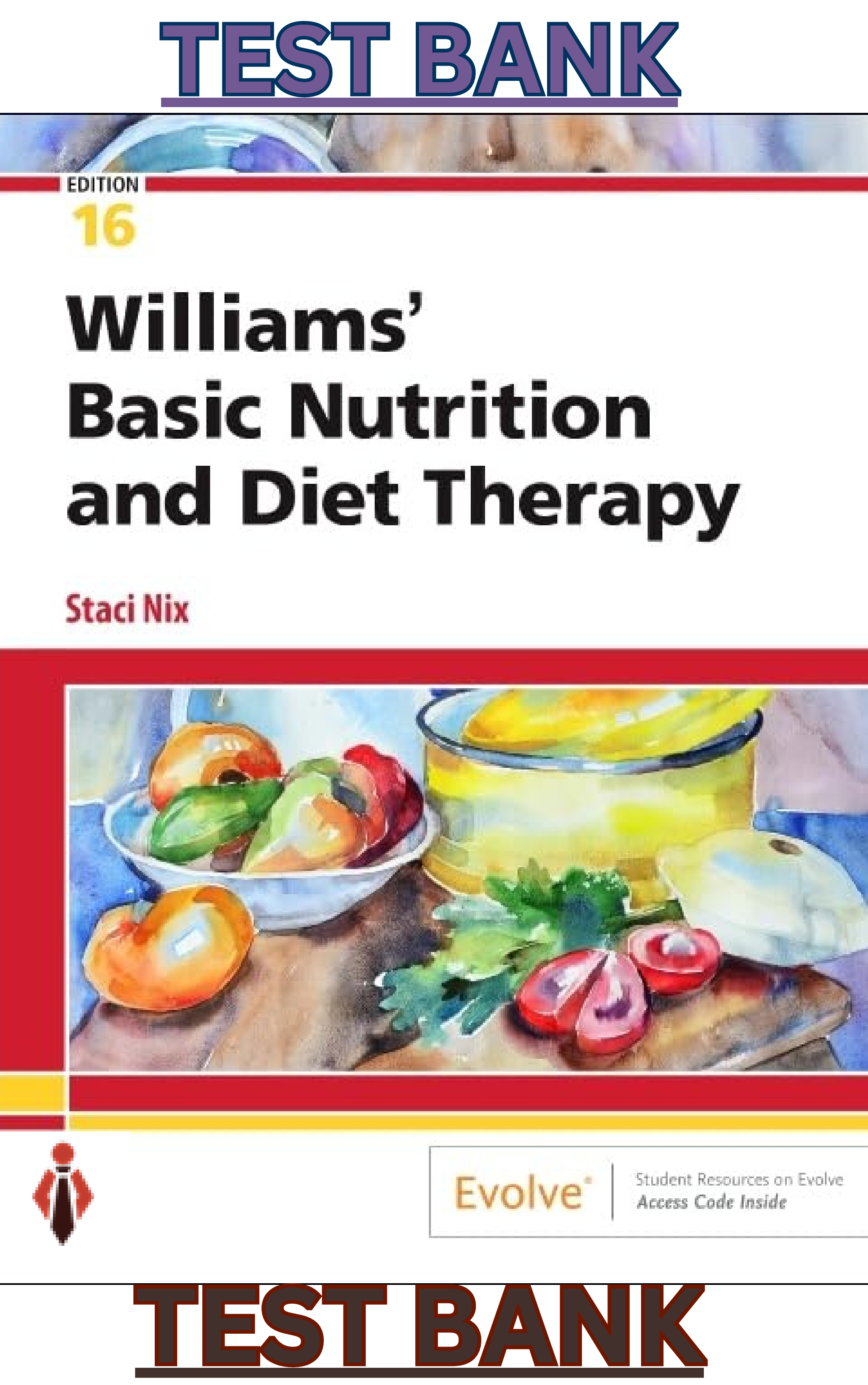
Test Bank for Williams' Basic Nutrition and Diet Therapy 16th Edition by Staci Nix - All 32 Chapters Included.
$ 32
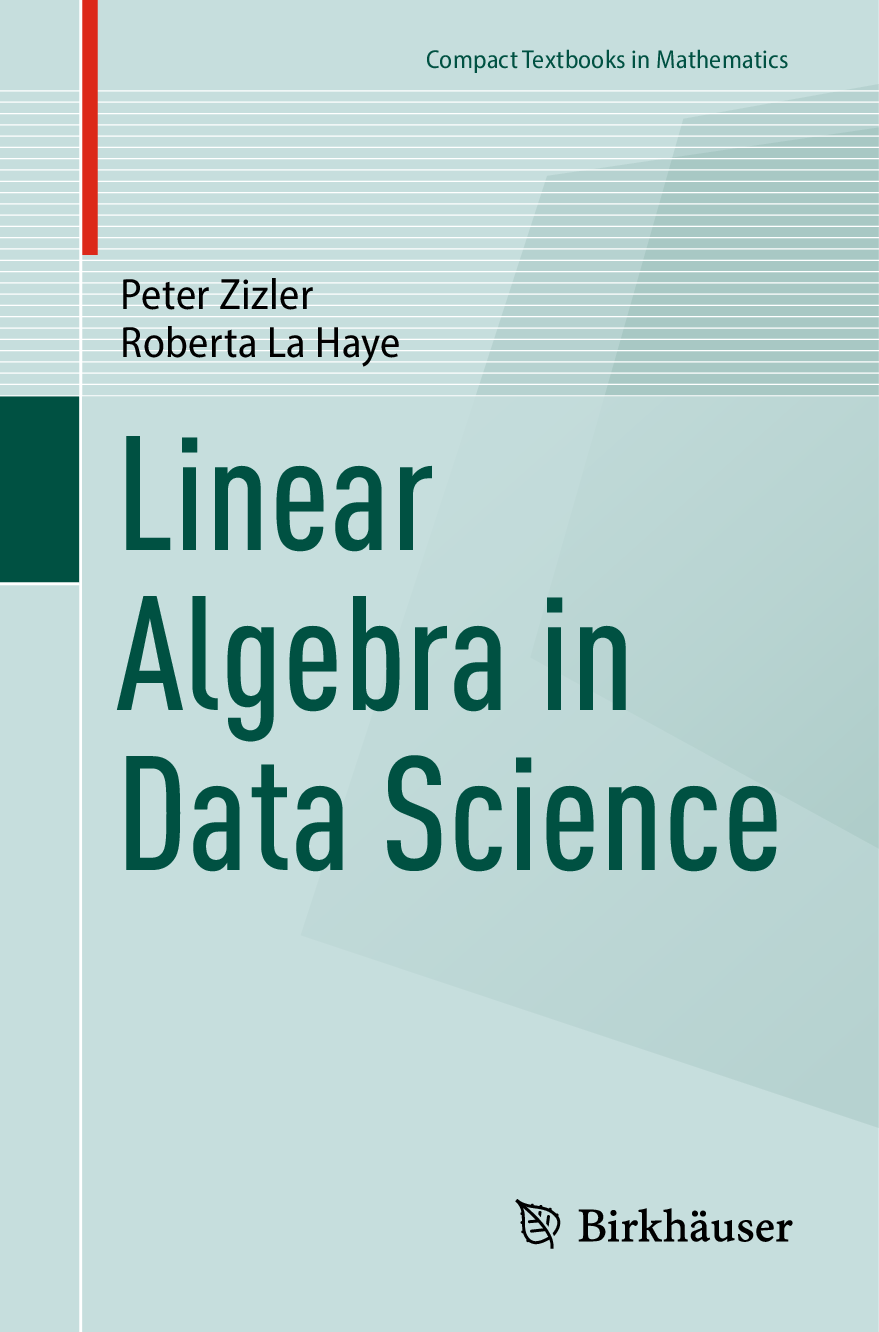
[eBook] [PDF] Linear Algebra in Data Science 1st Edition By Peter Zizler_ Roberta La Haye
$ 10
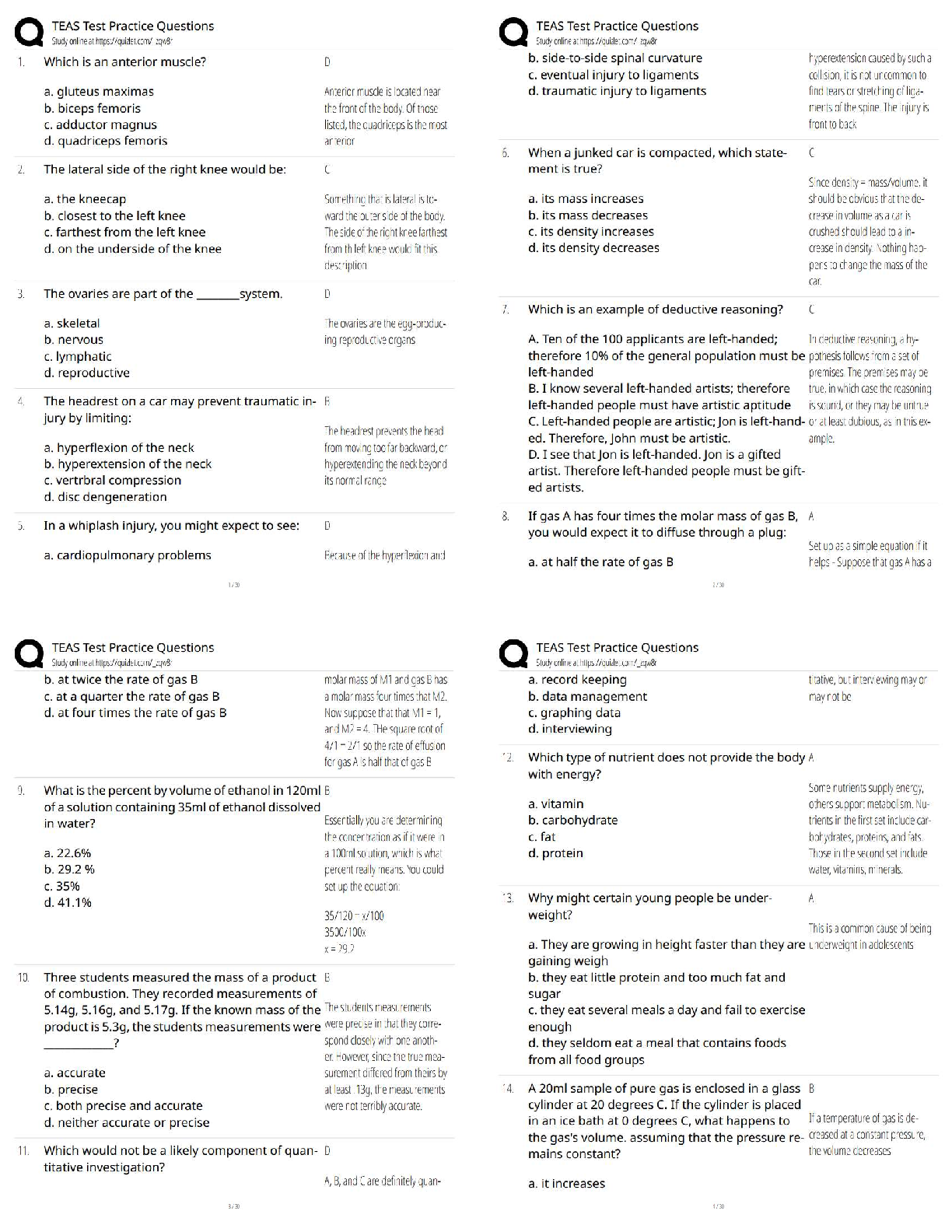
ATI TEAS Test Practice Questions / Score 100% / 2026 Updated Version 7 Prep
$ 13
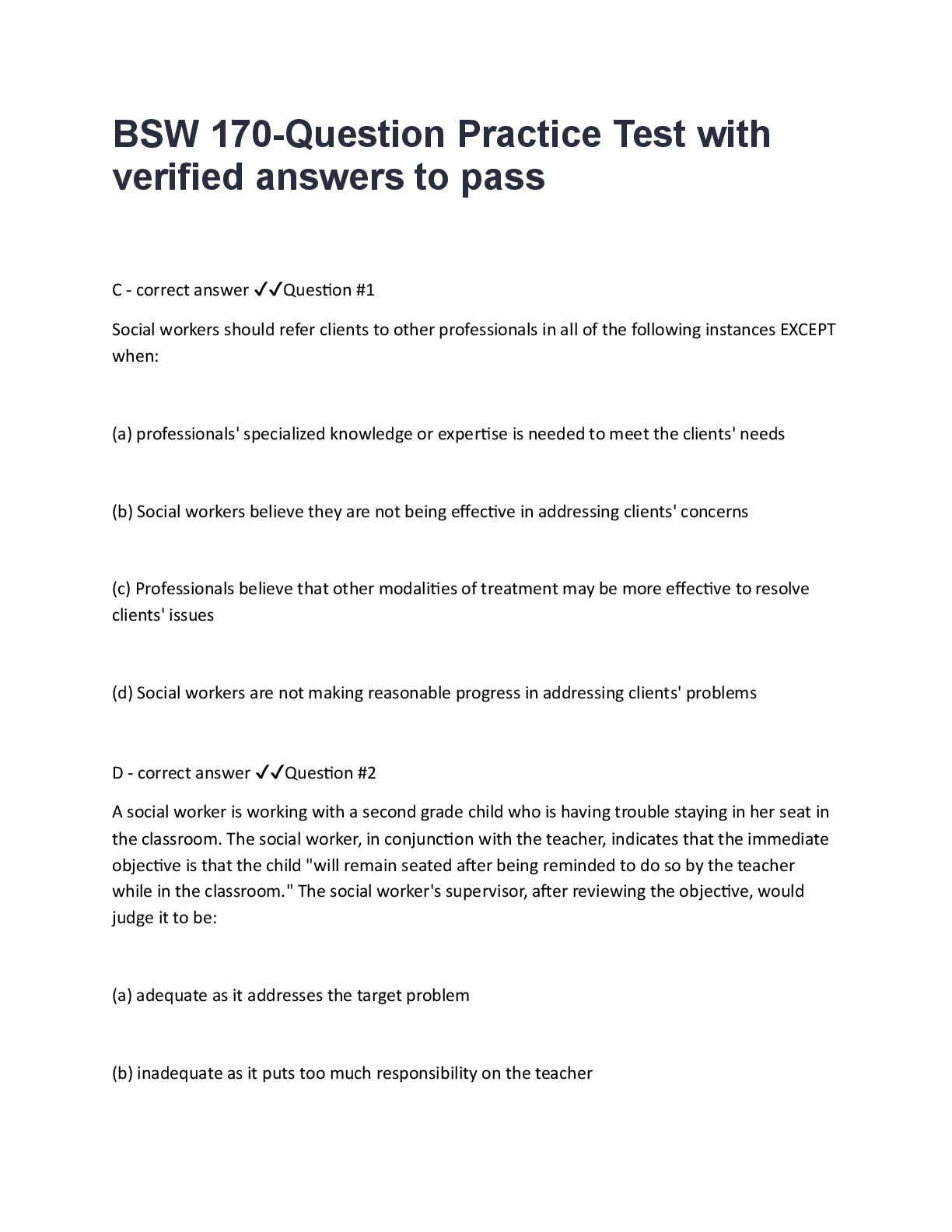
BSW 170-Question Practice Test with verified answers to pass
$ 25.5
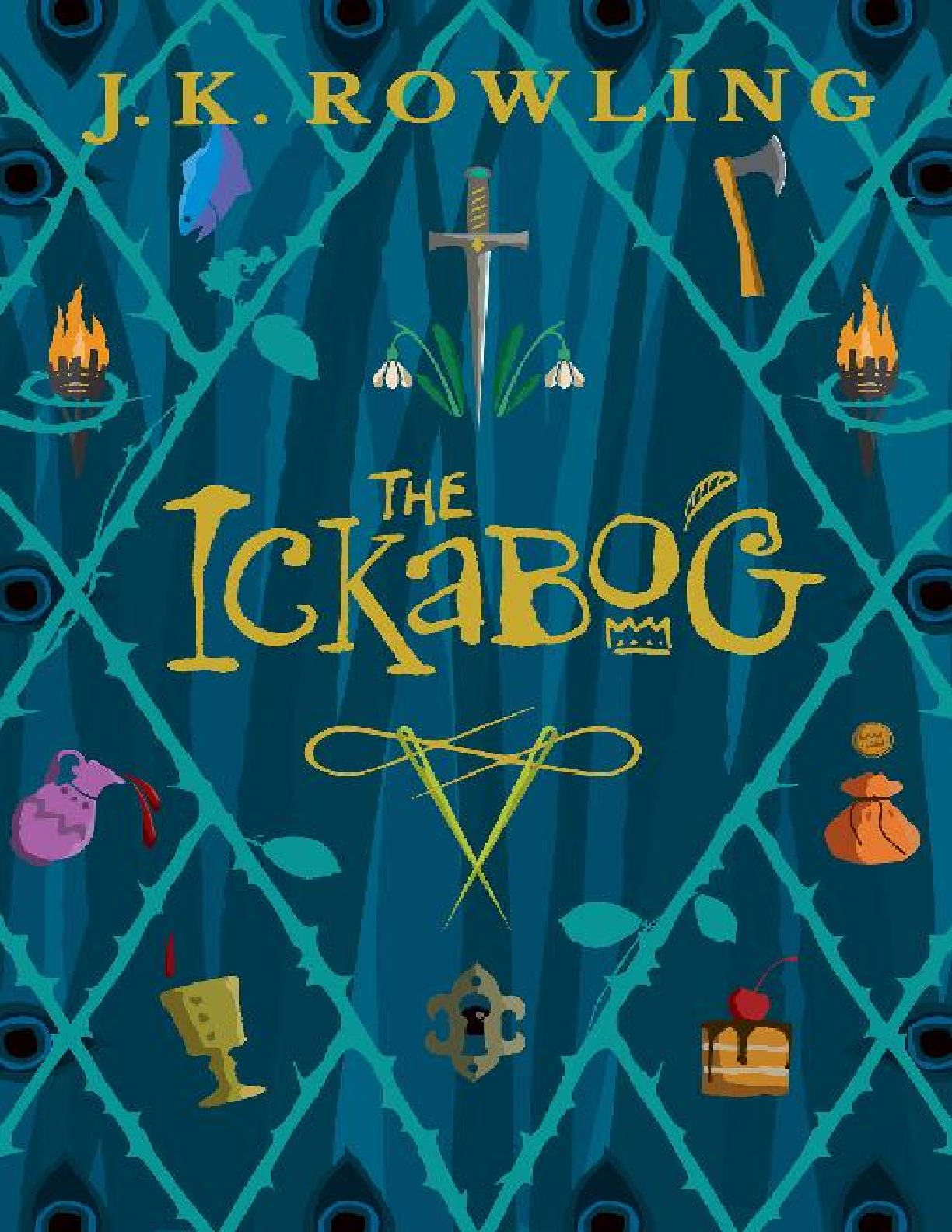
The Ickabog by J.K. Rowling
$ 4.5

AQA 2021 Assessment Resources 7356 AS Mathematics Exponentials and Logarithms Answers and commentaries
$ 7

STRAIGHTERLINE ENG 102 ENGLISH COMPOSITION II FULL COURSE ( CONTAINS ALL QUIZZES WITH CORRECT ANSWERS + ESSAYS) AUG 2021
$ 35
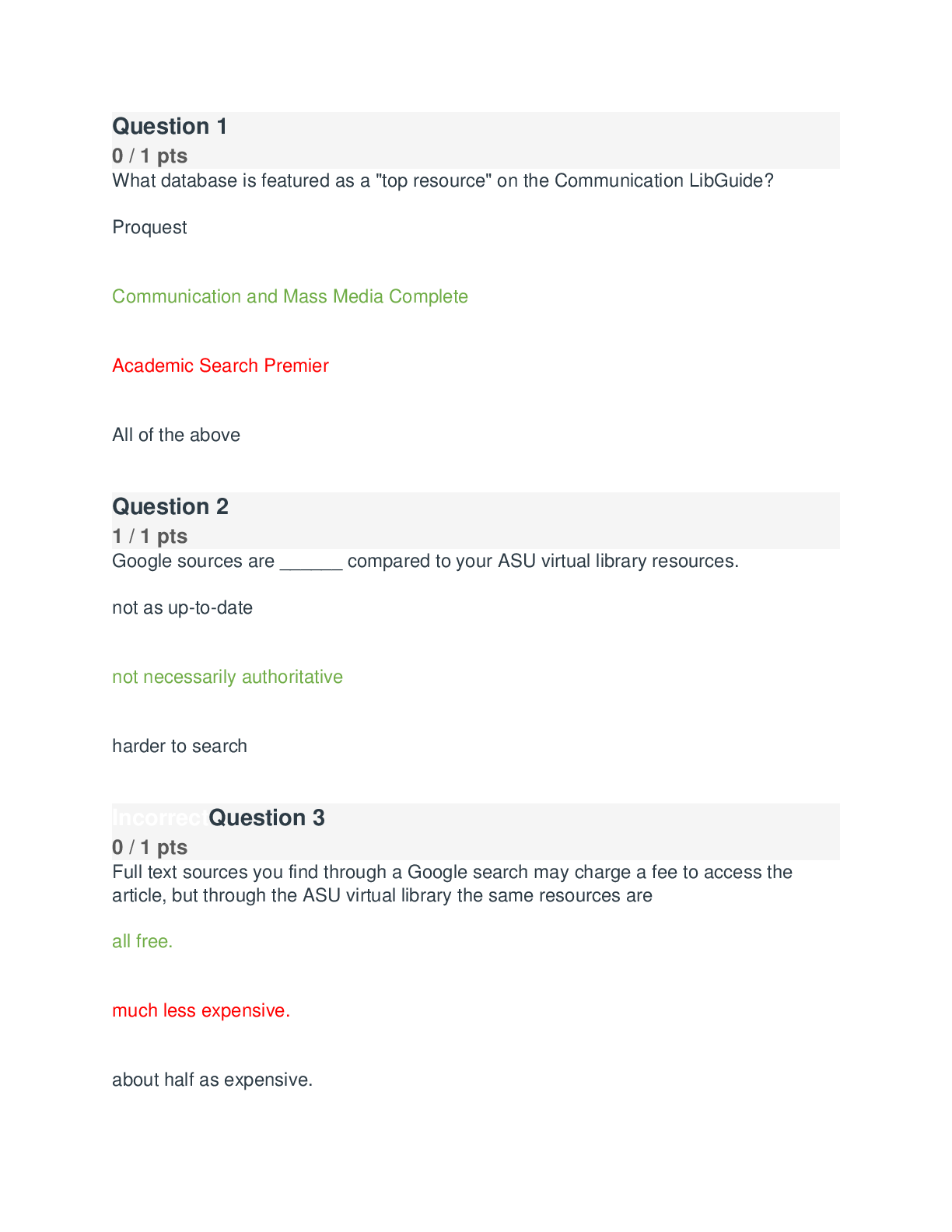
COM 207 Final Exam - 100% CORRECT QUESTIONS AND ANSWERS, A+ GRADE
$ 18
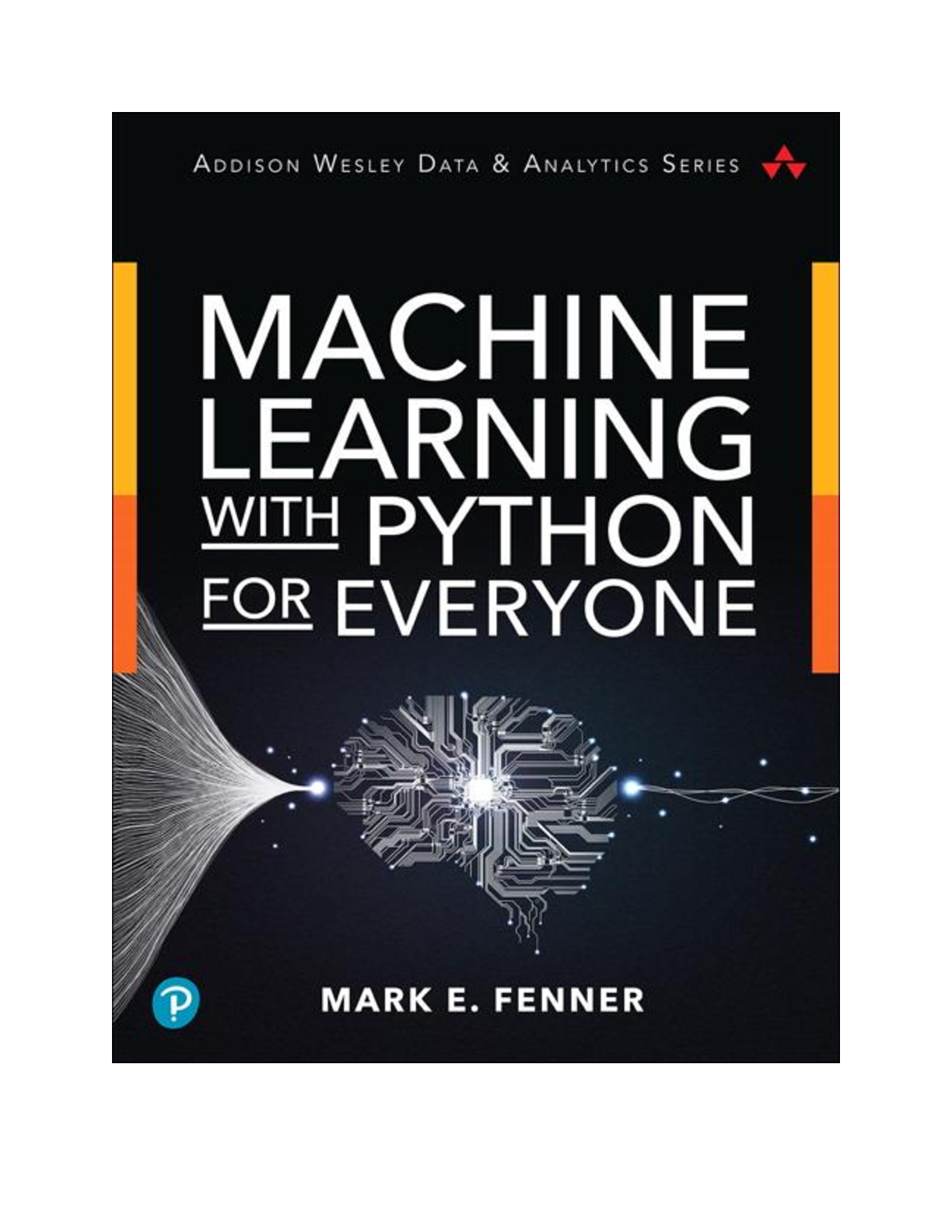
eBook for Machine Learning with Python for Everyone 1st Edition By Mark Fenner
$ 20
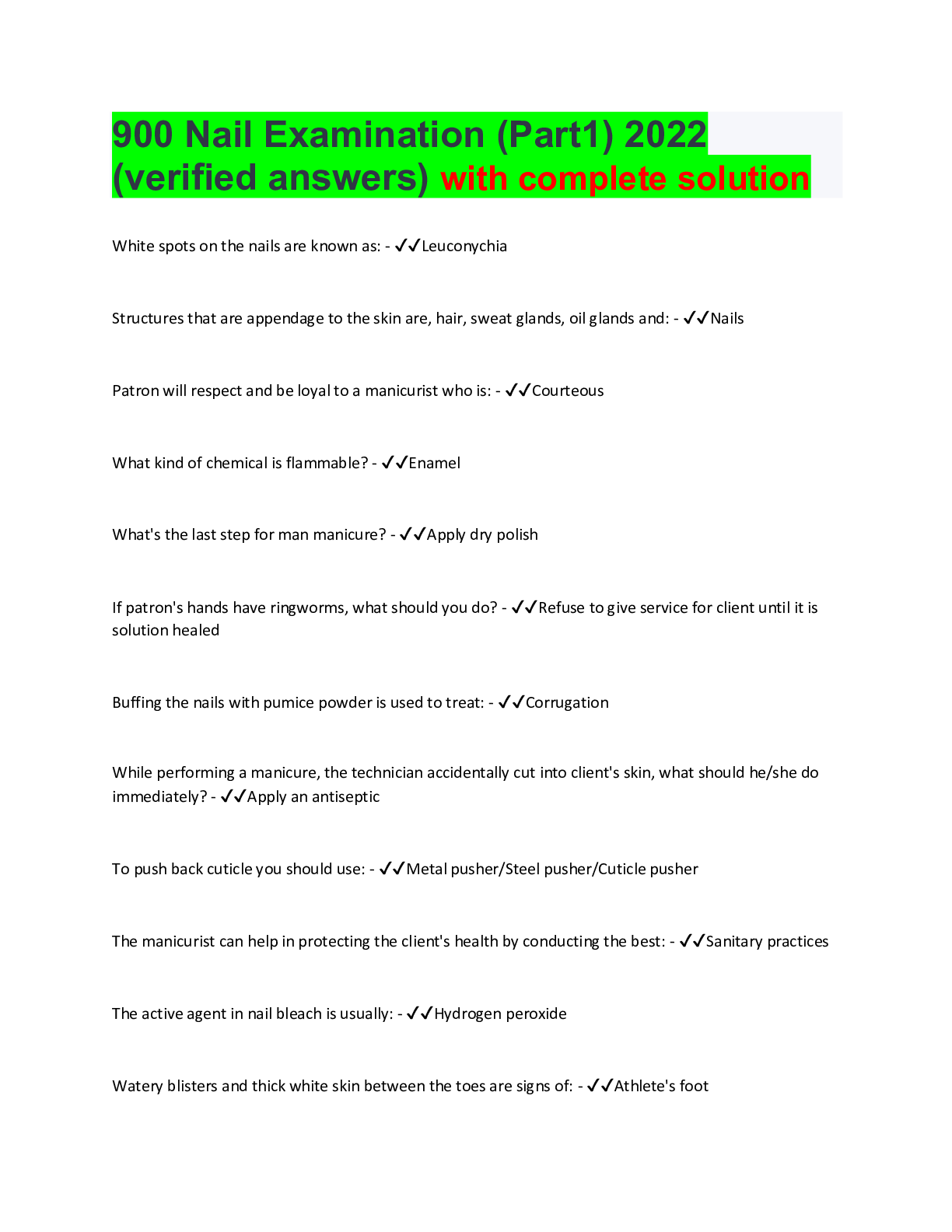
900 Nail Examination (Part1) 2022 (verified answers) with complete solution
$ 10

Indiana PSI Nail Practice Test 2022 (verified answers) with complete solution
$ 10

CTS Questions and Answers with Complete Solutions
$ 20
.png)
AQA AS FURTHER MATHEMATICS 7366/2D Paper 2 Discrete Mark scheme June 2021 Version: 1.1 Final Mark Scheme
$ 10
.png)
WGU Introduction to Communications C464: Competency 1
$ 5
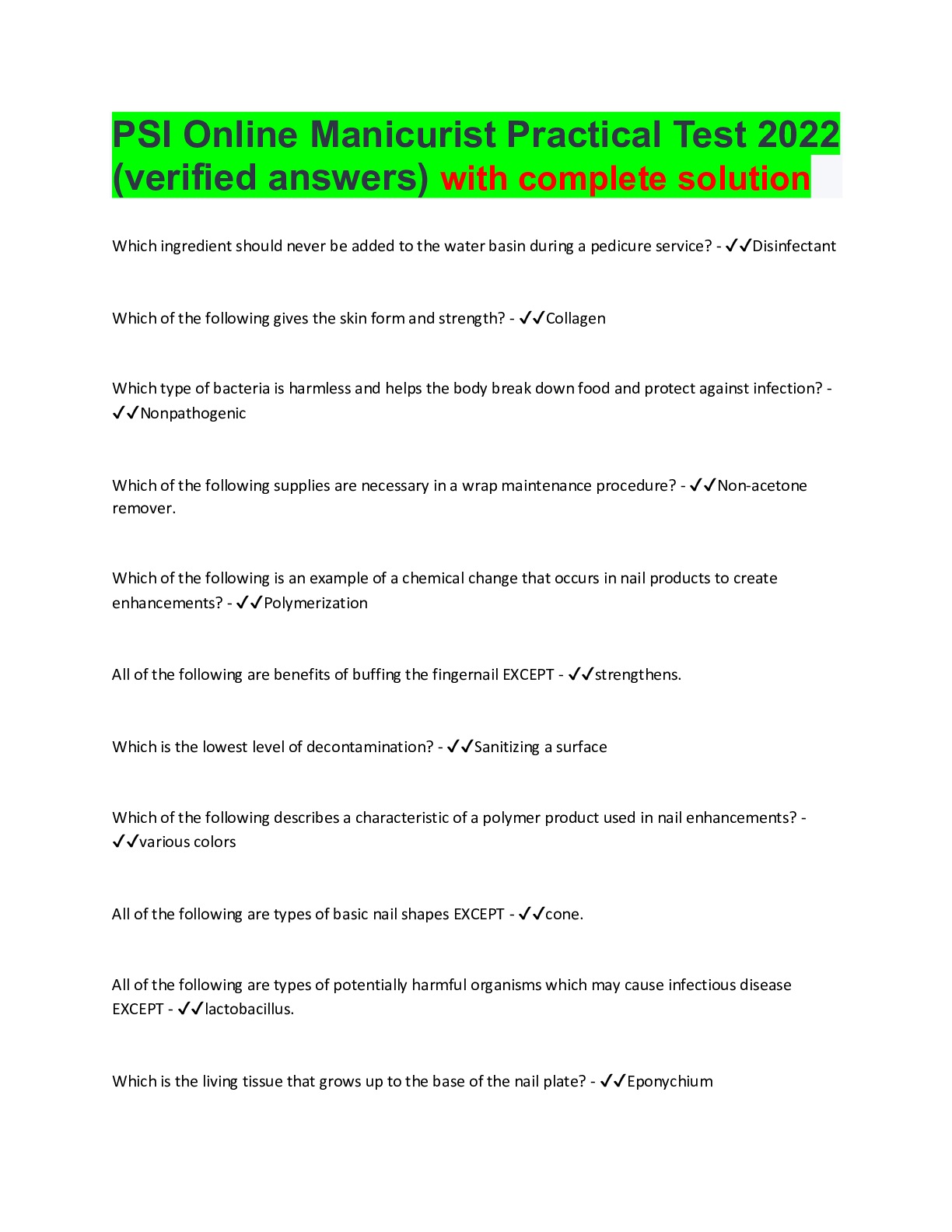
PSI Online Manicurist Practical Test 2022 (verified answers) with complete solution
$ 10
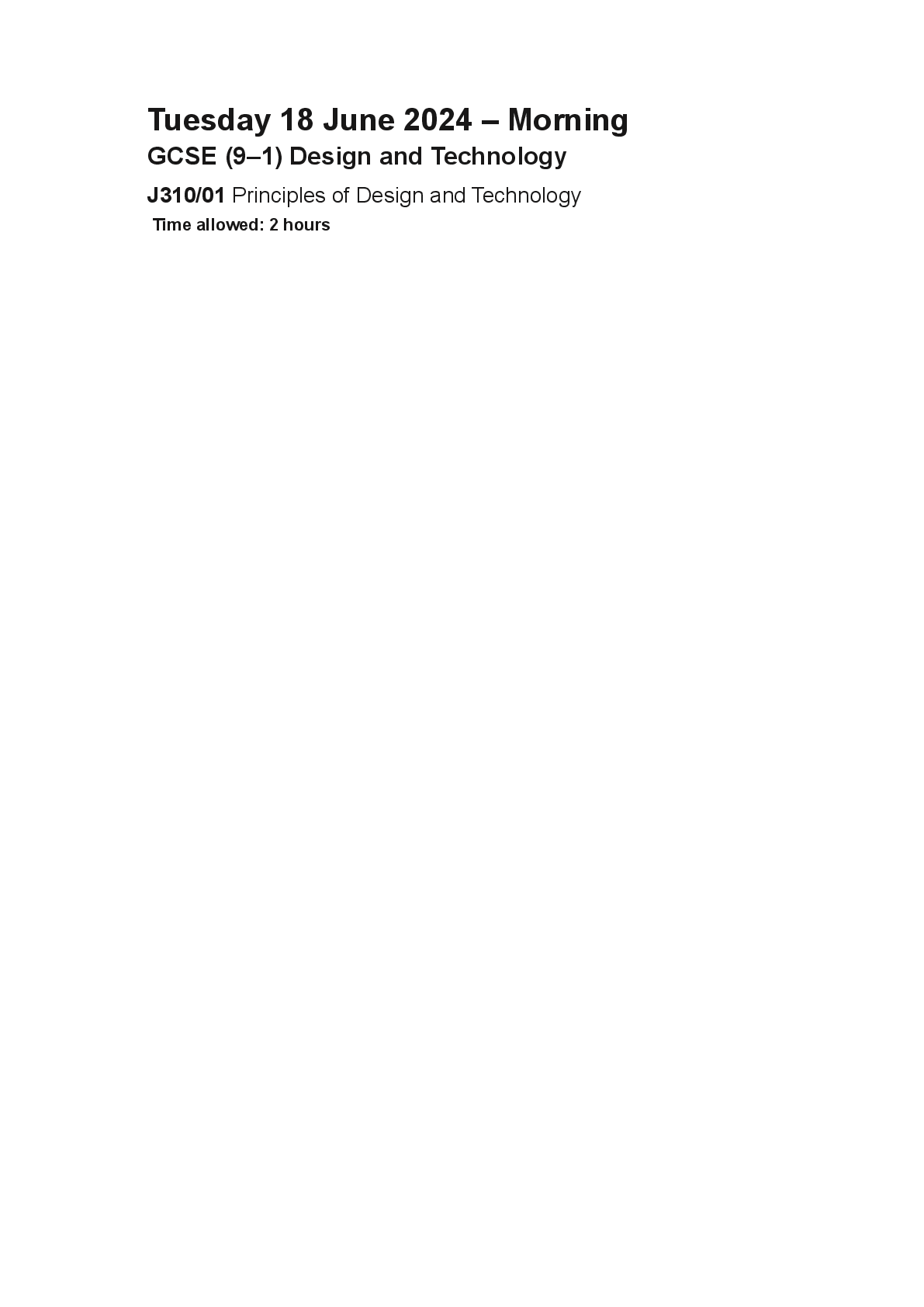
GCSE (9–1) Design and Technology J310-01 Principles of Design and Technology MERGED QUESTION PAPER AND MARK SCHEME
$ 16

IHP 330 7-2 Final Project




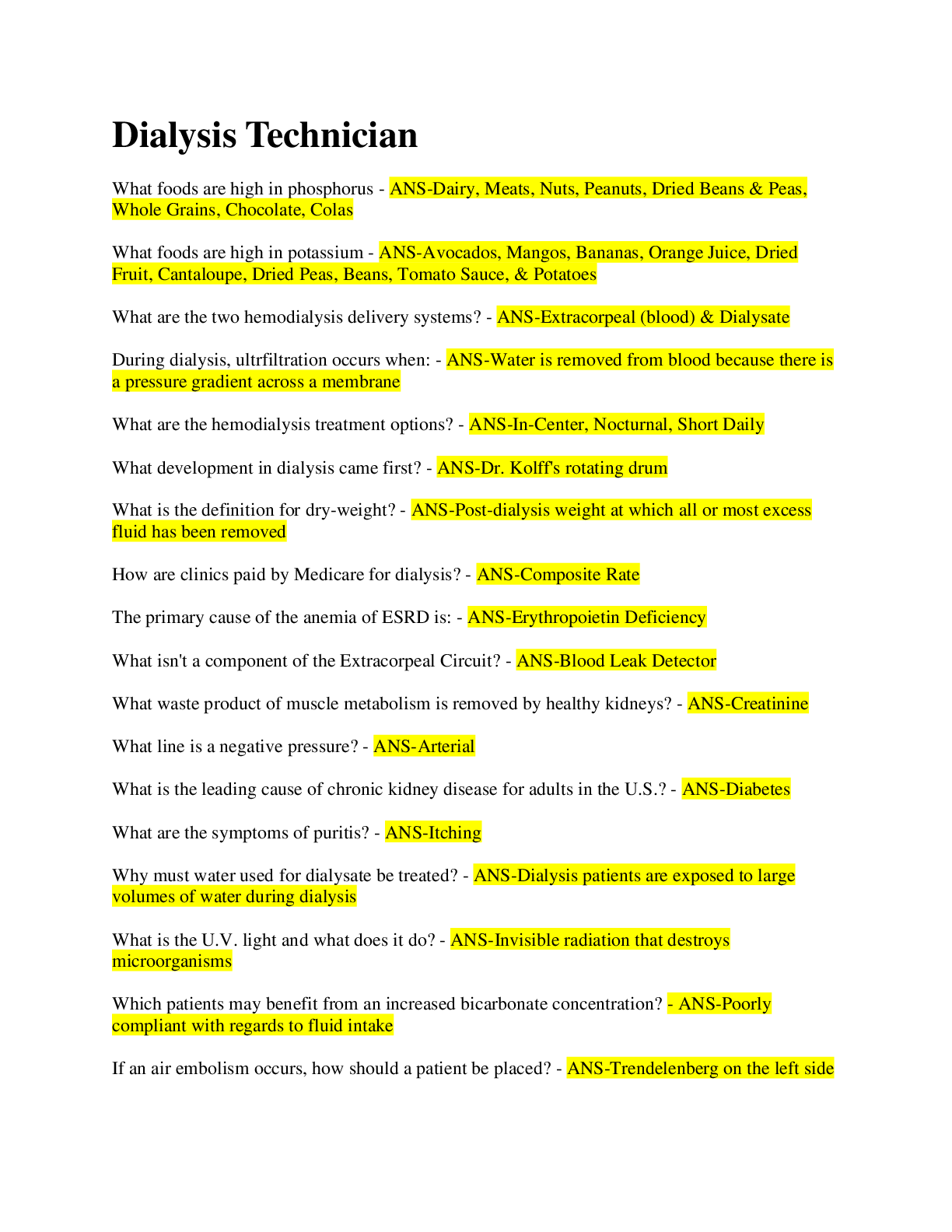

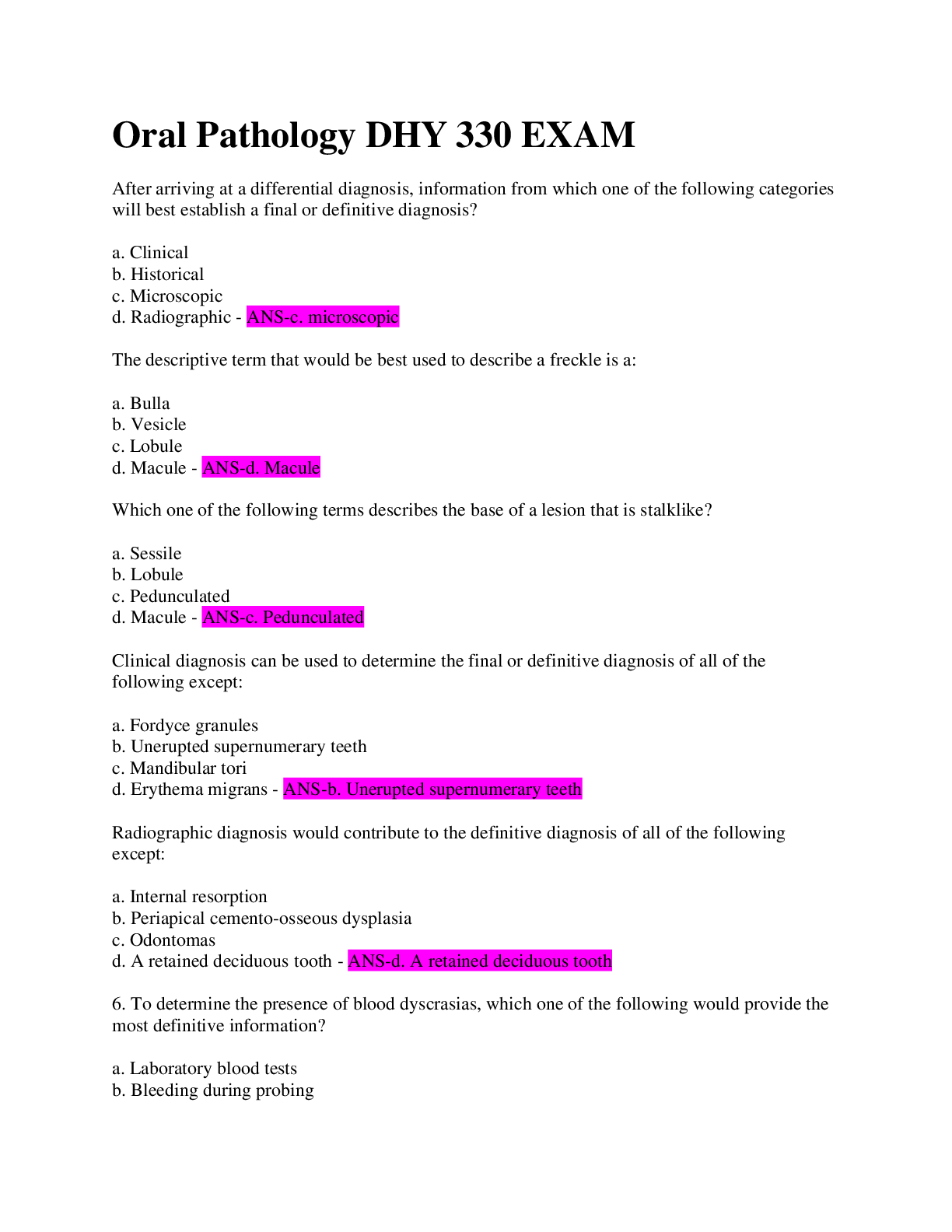
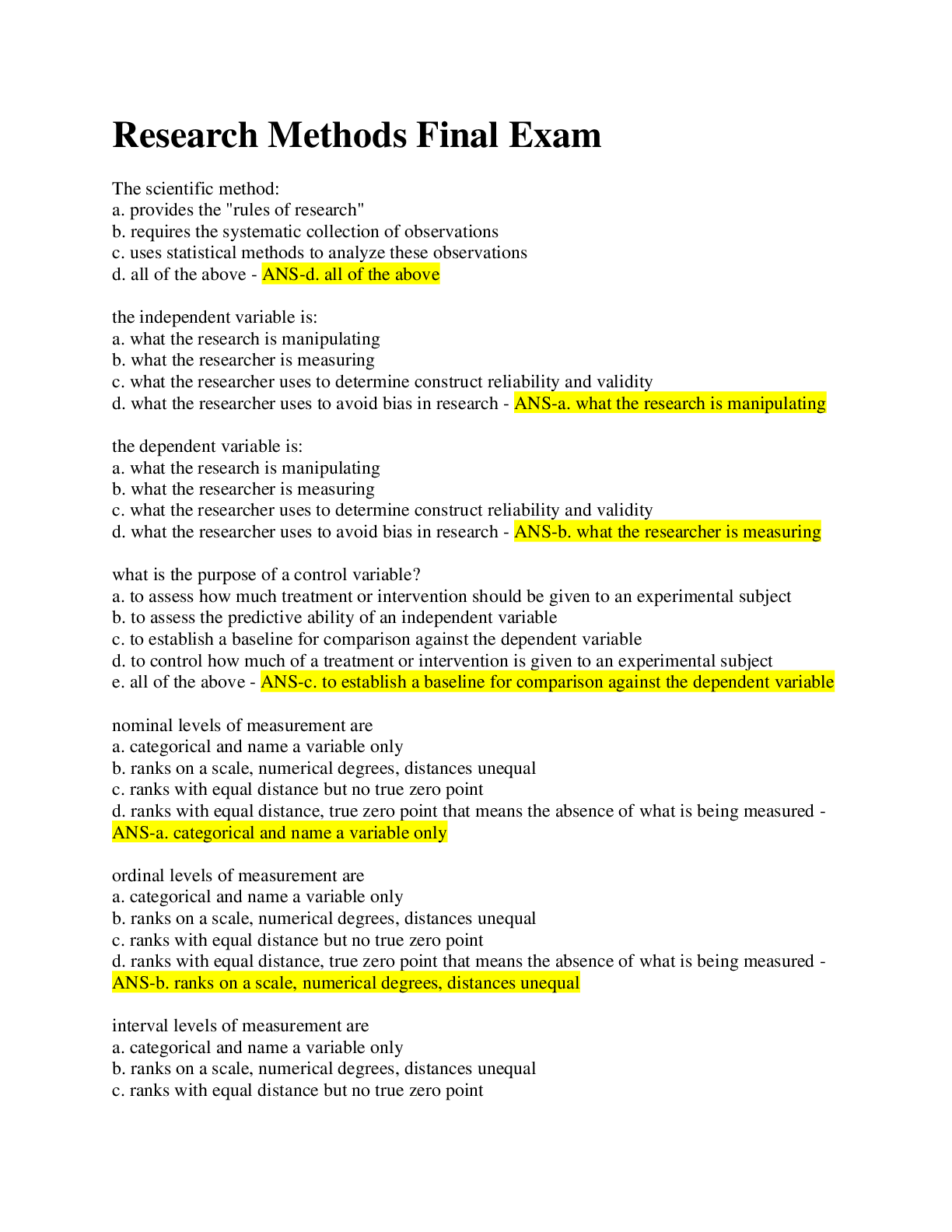
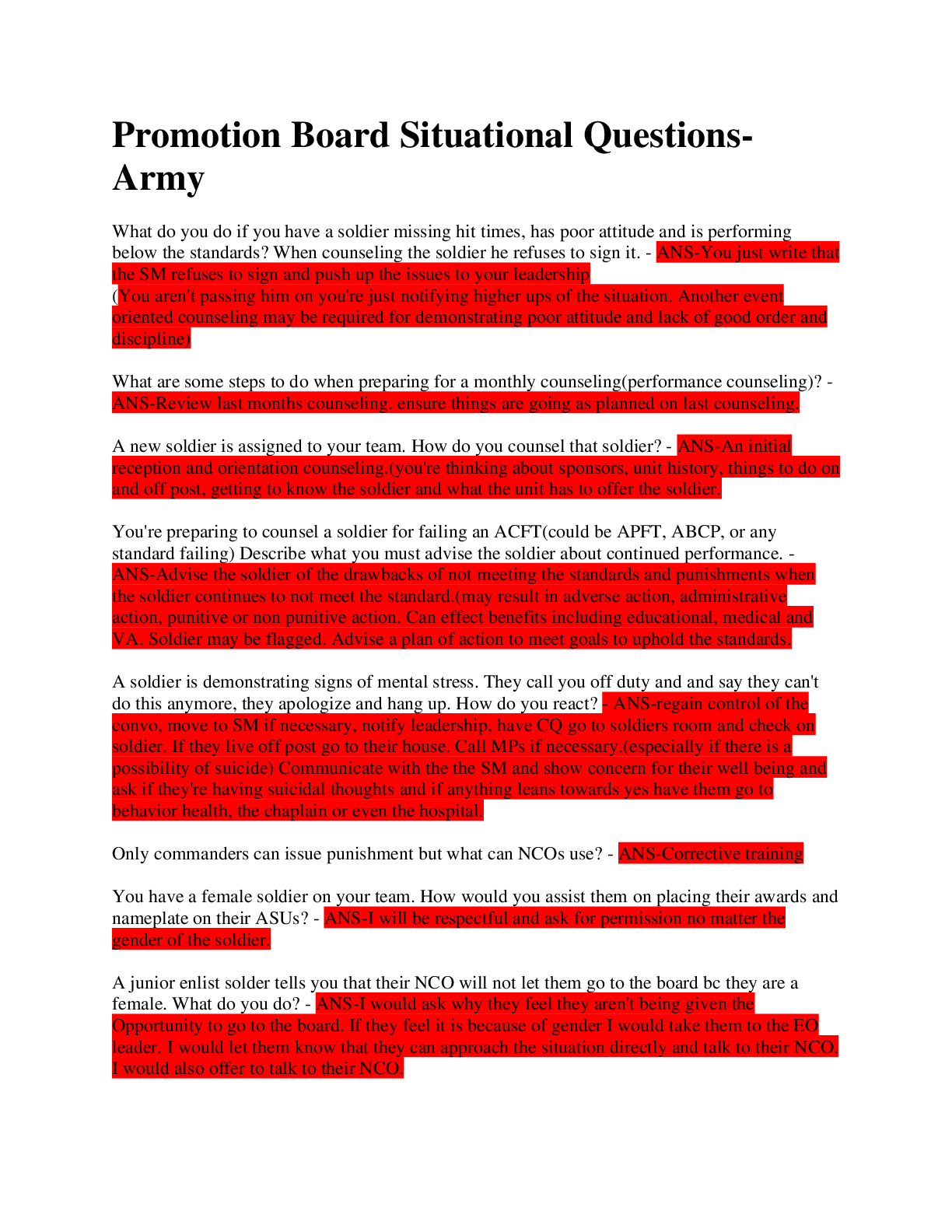
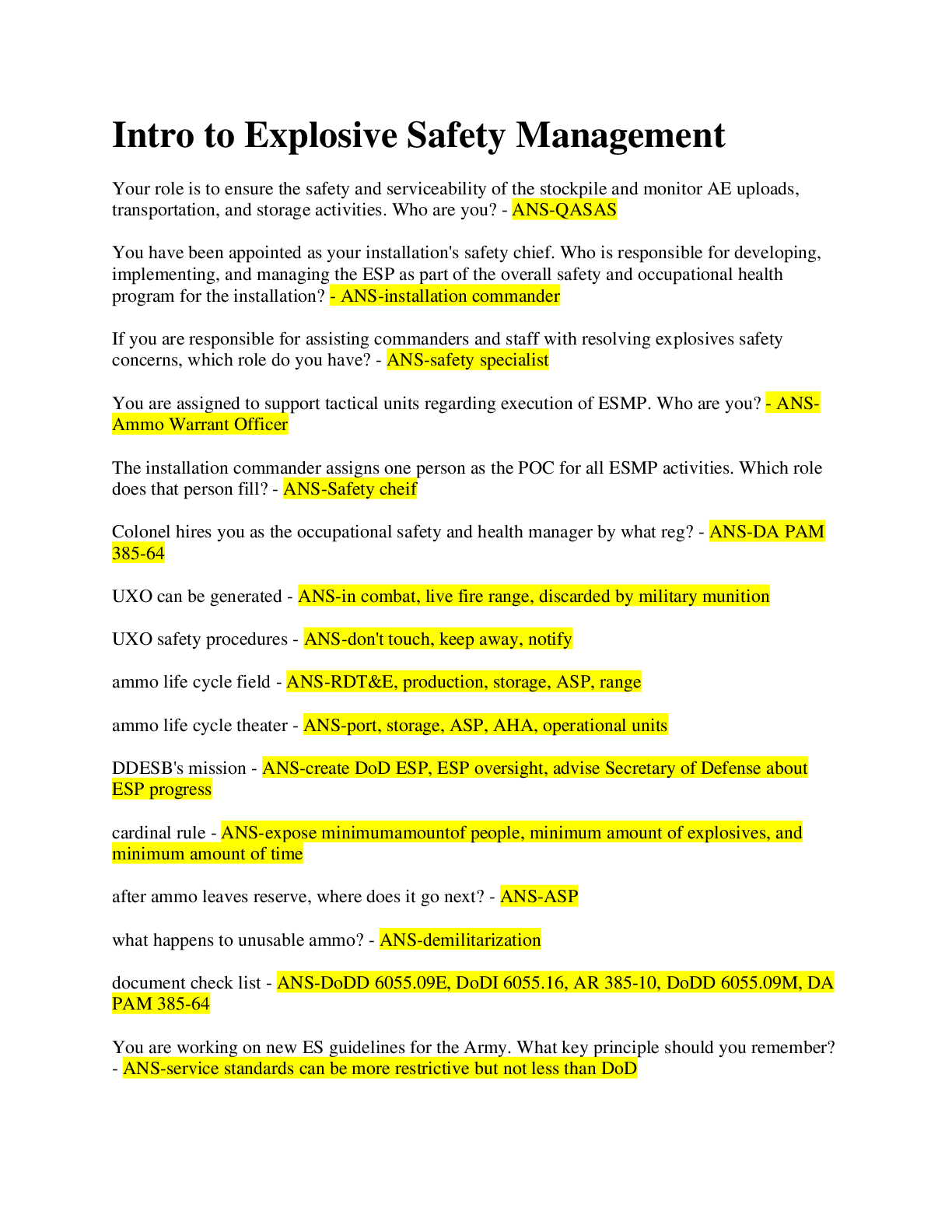
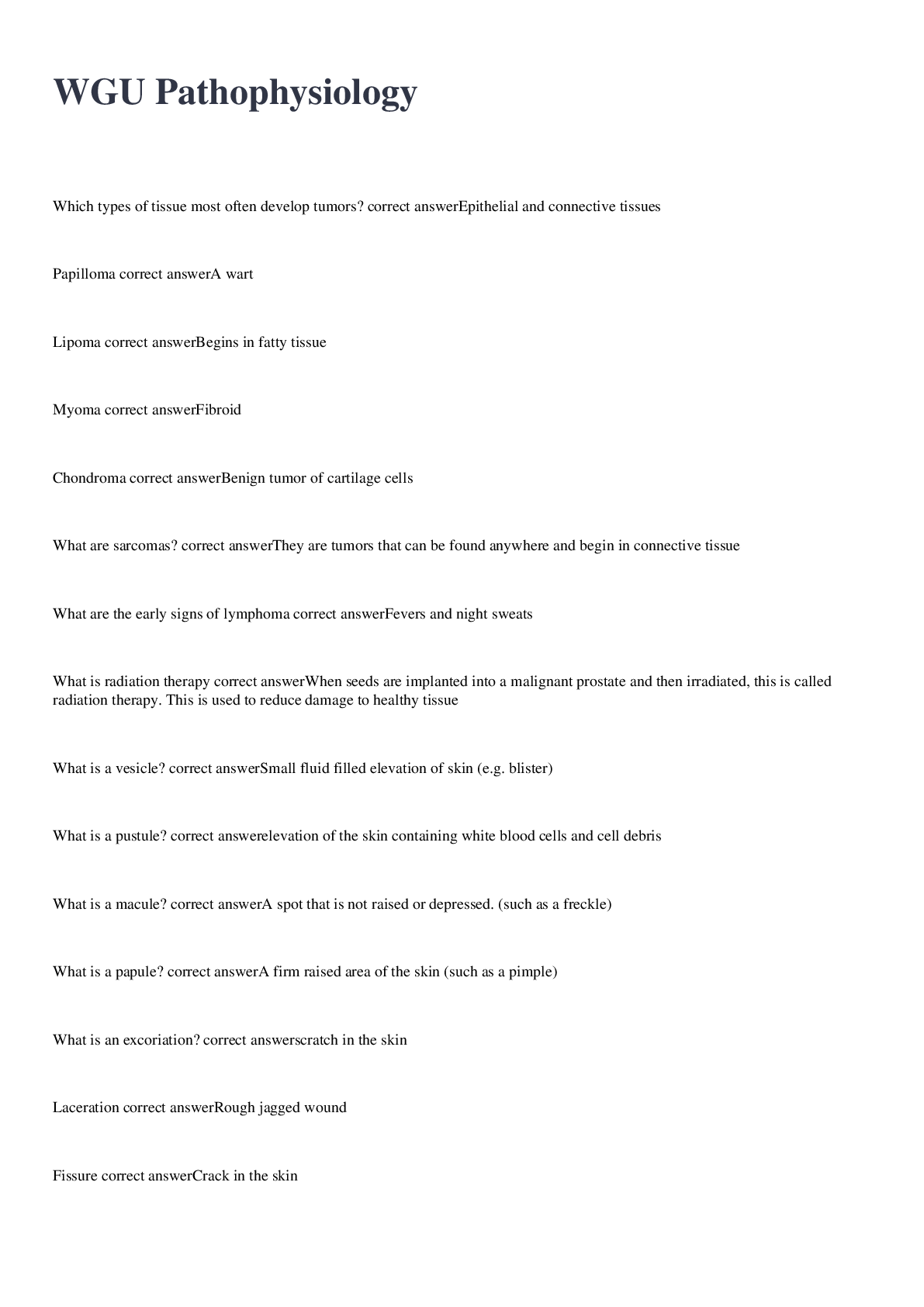
.png)
